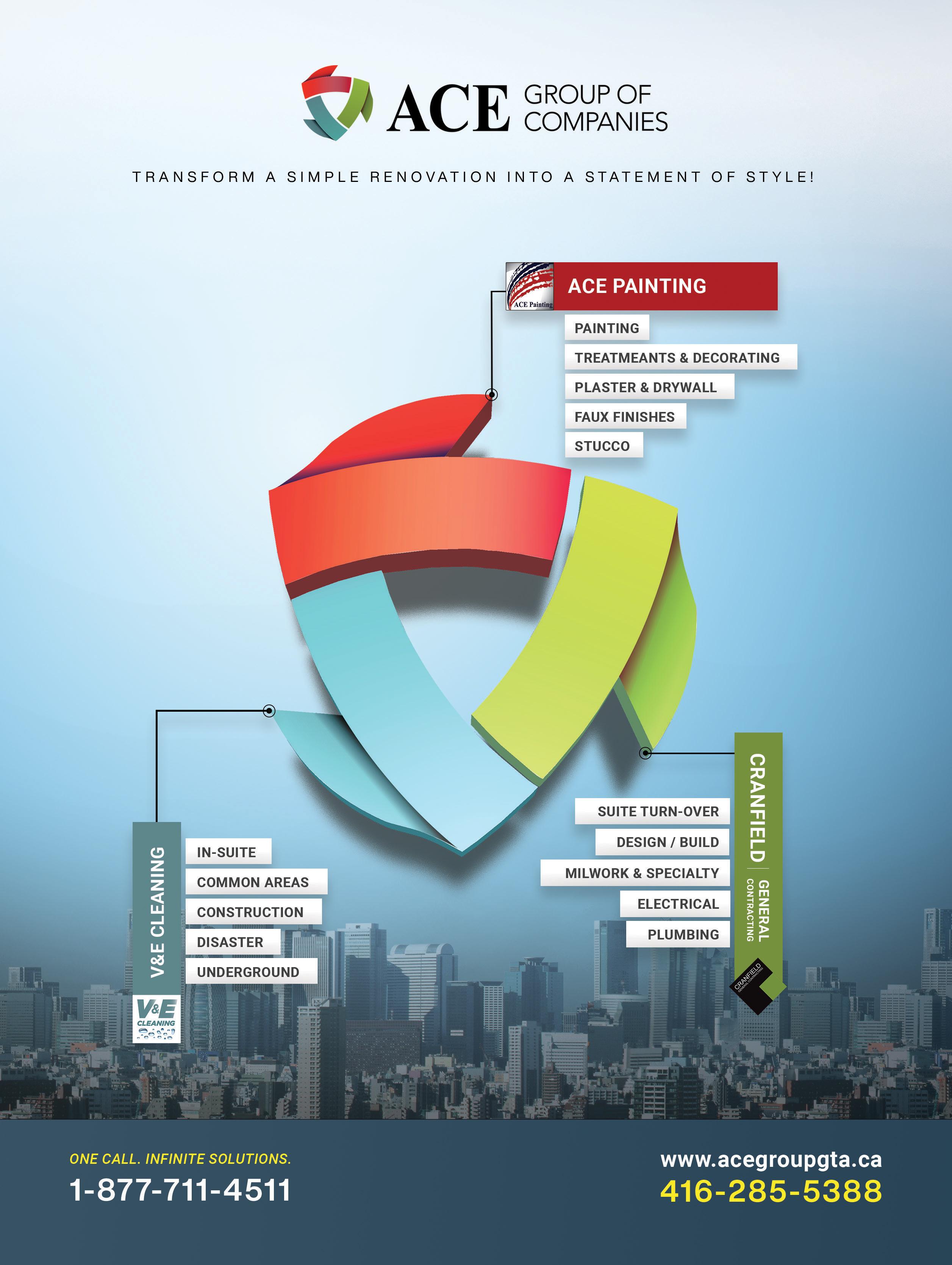Real Estate Legend: Scott Ullrich

There





There



As of this writing, high school students (including my daughter) are off school for the summer. Teachers are off, too, of course. But the learning doesn’t end, at least not for everyone. Many students are taking summer school courses to stay ahead of the game and give themselves a break later in their educational lives. Teachers are also taking classes to learn new skills and brush up on areas where they need some reminders. Of course, there will be downtime and beach time during the summer. But we could all benefit from some studying and learning.
This issue of RHB Magazine features a summary of the most recent episode of Real Estate Legends: Past, Present, and Future on BoldTV between Vanessa Topple, Anchor and Producer of BoldTV, and Scott Ullrich, Executive Vice President of Tribe Management Inc. You will learn about how Scott grew up in the real estate industry, his extensive educational background, Tribe’s merger with Gateway Property Management, managing with integrity, his family’s influence on his career, the evolution of the industry, and more.
The second article discusses the growing trend of converting condos into purpose-built rentals to help address the declining interest in condos and the lack of affordable housing in Canada. We examine how easy or difficult it would be to make the switch, as well as some of the numbers behind the conversions. The third article discusses the impact of Bill 10 on Ontario landlords and how they could use the legislation to their advantage.
Don't forget to read RHC’s newsletter, National Outlook, as well as the Regional Association Voice. FRPO provides an update on Let’s Build Ontario and summarizes its recent Earth Day webinar. Yardi Canada wraps up this issue with a discussion of the benefits of mobile property management tools. Make sure to check out the digital edition of the magazine, which features content not found in these pages.
We enjoy hearing from our readers, and we want to support twoway communication. If you have any comments or questions, send them to david@rentalhousingbusiness.ca. I look forward to your emails.

Publisher Marc Côté
marc@rentalhousingbusiness.ca
Associate Publisher Nishant Rai nishant@rentalhousingbusiness.ca
Editorial David Gargaro
david@rentalhousingbusiness.ca
Creative Director / Designer Scott Clark
Sales Executive
Justin Kreslin
justin@rentalhousingbusiness.ca
Office Manager
Geeta Lokhram
One year $49.99 Cdn
Two years $79.99 Cdn
Single copy sales $9.99 Cdn
Opinions expressed in articles are those of the authors and do not necessarily reflect the views and opinions of the RHC Board or management. RHC and RHB Inc. accept no liability for information contained herein. All rights reserved. Contents may not be reproduced without the written permission from the publisher. P.O. Box 696, Maple, ON L6A 1S7 416-236-7473
Produced in Canada
All contents copyright © RHB Inc. Canadian Publications Mail Product Sales Agreement No. 42652516
David Gargaro Senior Editor



Vanessa Topple, Anchor and Producer of BoldTV and RHBTV, flew to Vancouver to interview Scott about his experience in the real estate industry.




There













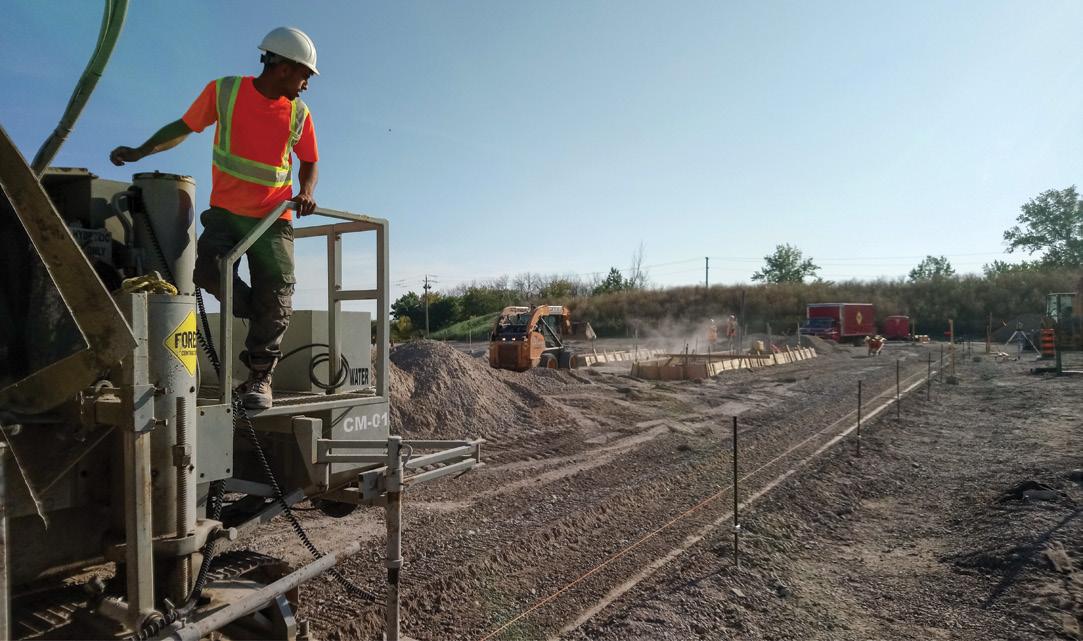
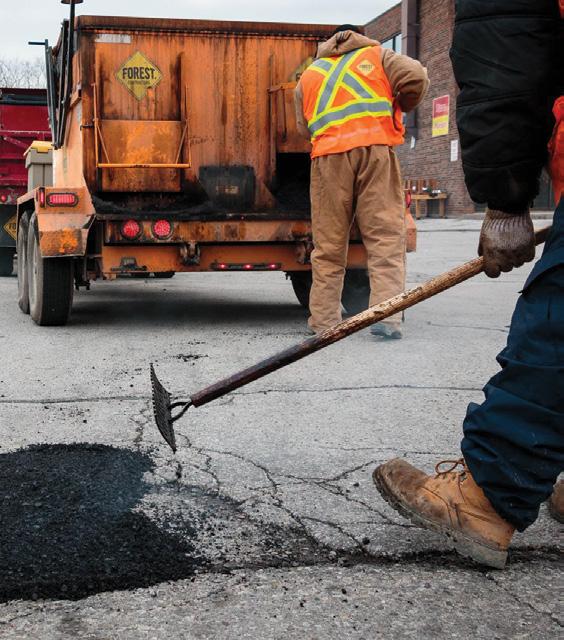


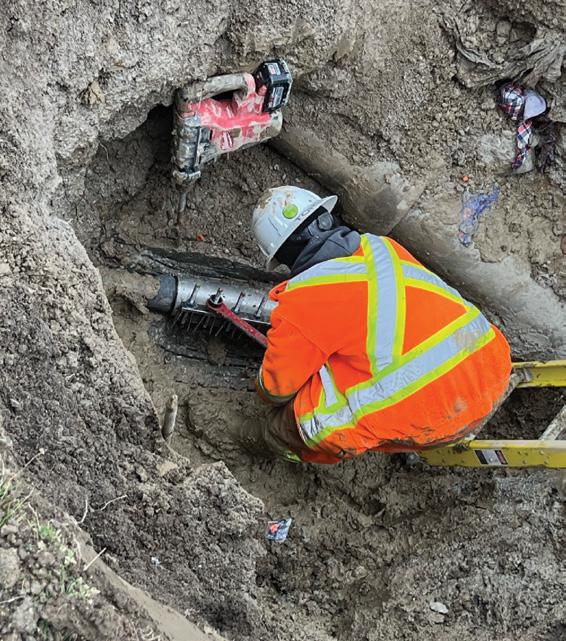




This issue of National Outlook announces several significant changes and events involving the association. It also provides summaries from a CMHC report and a survey from Royal LePage, as well as information on the GST rebate for first-time home buyers.
The Canadian Federation of Apartment Associations (CFAA) has officially rebranded as Rental Housing Canada (RHC). The new name reflects the association’s broad membership, team expansion, and sharpened focus on elevating the voice of rental housing at the national level. I am also honoured to announce I have been named the official president and CEO of the newly named association. See pages 35-39 to learn more about the changes, as well as the names of the newly announced Board of Directors and highlights from the recent RHC Rental Housing Conference.
On June 19, 2025, Canada Mortgage and Housing Corporation (CMHC) released new estimates on Canada’s housing supply gaps. The report shows returning to housing affordability levels last seen in 2019 would require building 430,000 to 480,000 new housing units per year over the next decade. This would mean doubling the current pace of home construction in Canada. See page 40 to read the highlights of the report.
On May 27, 2025, François-Philippe Champagne, Minister of Finance and National Revenue, tabled legislative proposals to amend the Excise Tax Act to introduce a new GST rebate. First-time home buyers will be able to save up to $50,000 on a new home, as the GST will be removed on new homes up to $1 million and
reduced on new homes between $1 million and $1.5 million. See page 41 to learn more about the FTHB GST Rebate.
If you are not already a direct member of Rental Housing Canada, please consider joining RHC as a Direct Rental Housing Provider Member or a Suppliers Council Member. Visit www.rentalhousingcanada.ca today.

Tony Irwin President and CEO, FRPO, and President, RHC
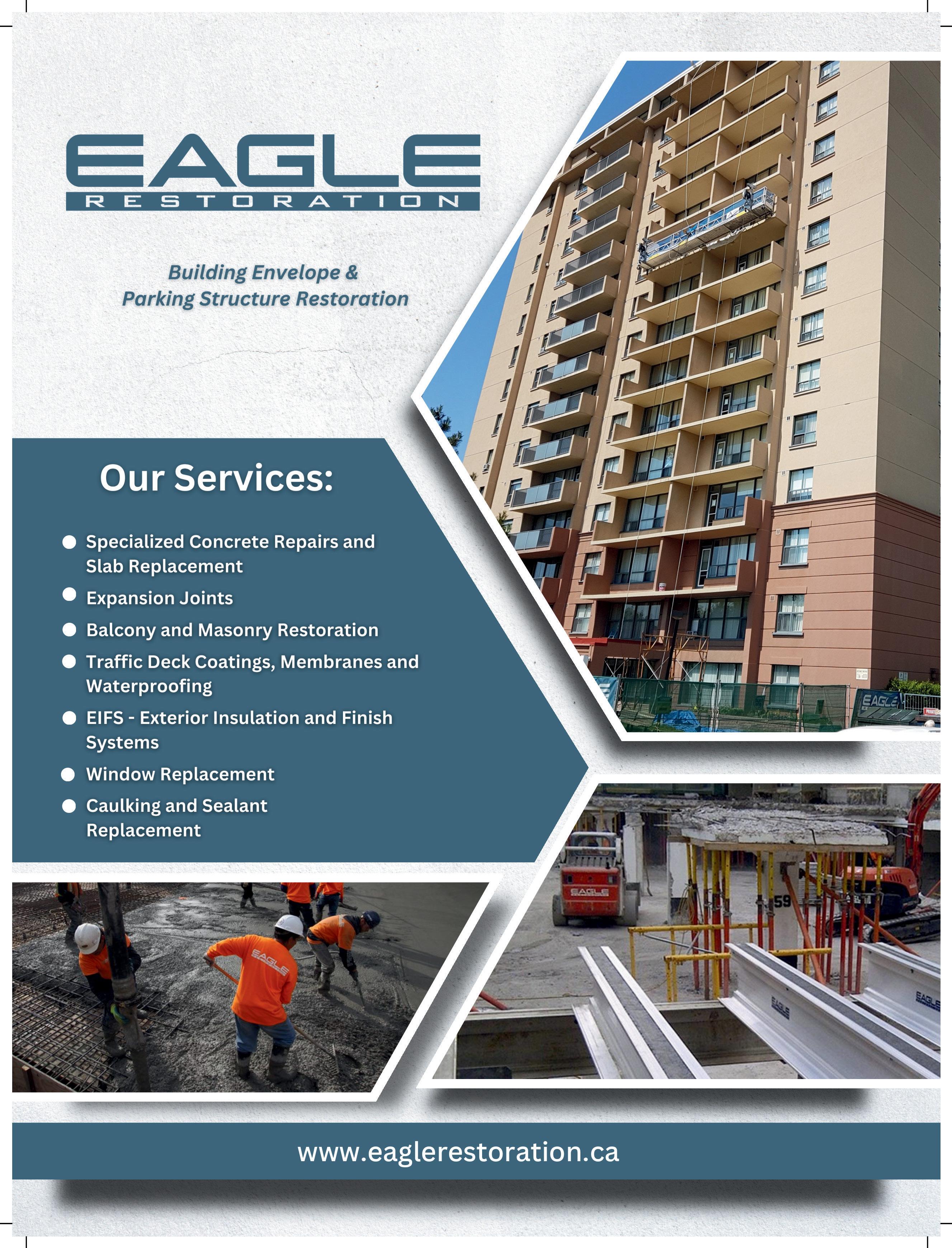
35. The Canadian Federation of Apartment Associations (CFAA) announced that it will now be known as Rental Housing Canada (RHC).




38. The 2025 CFAA Rental Housing Conference brought Canada’s rental housing community together in Vancouver, under the theme Partnering for Progress
Corporation des Propriétaires Immobiliers du Québec (CORPIQ) www.corpiq.com P: 514-748-1921
Eastern Ontario Landlord Organization (EOLO) www.eolo.ca P: 613-235-9792
Federation of Rental-housing Providers of Ontario (FRPO) www.frpo.org P: 416-385-1100, 1-877-688-1960
Greater Toronto Apartment Association (GTAA) www.gtaaonline.com P: 416-385-3435
Hamilton & District Apartment Association (HDAA) www.hamiltonapartmentassociation.ca P: 905-632-4435
Investment Property Owners Association of Nova Scotia (IPOANS) www.ipoans.ns.ca P: 902-425-3572
LandlordBC www.landlordbc.ca P: 1-604-733-9440
Vancouver Office P: 604-733-9440
Victoria Office P: 250-382-6324
40. CMHC published a report with new estimates on Canada’s housing supply gaps.
Rental Housing Canada represents the owners and managers of close to 1.5 million residential rental suites in Canada, through 13 apartment associations and direct landlord memberships across Canada. RHC is the sole national organization representing the interests of Canada’s $950 billion rental housing industry.
For more information about RHC itself, see www.rentalhousingcanada.ca or telephone 613-235-0101.
London Property Management Association (LPMA) www.lpma.ca P: 519-672-6999

New Brunswick Apartment Owners Association (NBAOA) www.nbaoa.ca jbrealsetate@nb.aibn.com
Manufactured Home Park Owners Alliance of British Columbia (MHPOA) www.mhpo.com P: 1-877-222-4560
Professional Property Managers’ Association (of Manitoba) (PPMA) www.ppmamanitoba.com P: 204-957-1224
Saskatchewan Landlord Association Inc. (SKLA) www.skla.ca P: 306-653-7149
Waterloo Regional Apartment Management Association (WRAMA) www.wrama.com P: 519-748-0703








Largest Primary Rental Markets by Unit Count in Central Canada

1 Montreal - 653,365
2 Toronto - 334,748
3 Quebec City - 114,092
4 Ottawa - 78,463
5 London - 48,189
6 Hamilton - 45,445

Over 14,000 products in stock daily—supplying the full range of building maintenance and repair needs, with expert support and fast delivery.
H&S Building Supplies Ltd. is a leading wholesaler of maintenance supplies in Ontario, catering to the needs of the multi-unit residential sector. We are known for our superior quality products, affordable prices, timely deliveries, and unparalleled product expertise. Our sole purpose is to support and supply the property management industry.
Serving the Greater Toronto Area (GTA) & its surrounding regions, including Ottawa, Kingston, Kitchener-Waterloo, Hamilton, London, St. Catharines, and Burlington.


By David Gargaro

Scott Ulrich, Executive Vice President of Tribe Management Inc., has been involved with the real estate industry for more than 40 years. In addition to spending the last four years with his current company, he grew up watching and learning about property management in the family business, acquired numerous certifications and professional degrees, has served on various industry committees, and is a member of several industry associations. He has a B.A. from Simon Fraser University, CPA and CA degrees, a diploma in urban land economics from the University of British Columbia, a Certified Property Management designation from the Institute of Real Estate Management, and RI and FRI designations from the Real Estate Institutes of BC and Canada, respectively.
Vanessa Topple, Anchor and Producer of RHBTV and BoldTV, flew from Toronto to Vancouver to interview Scott in his home, where they discussed his background in the real estate industry, overcoming COVID-related business challenges, family influence, motivation, and more. To follow is an edited transcript of their discussion.

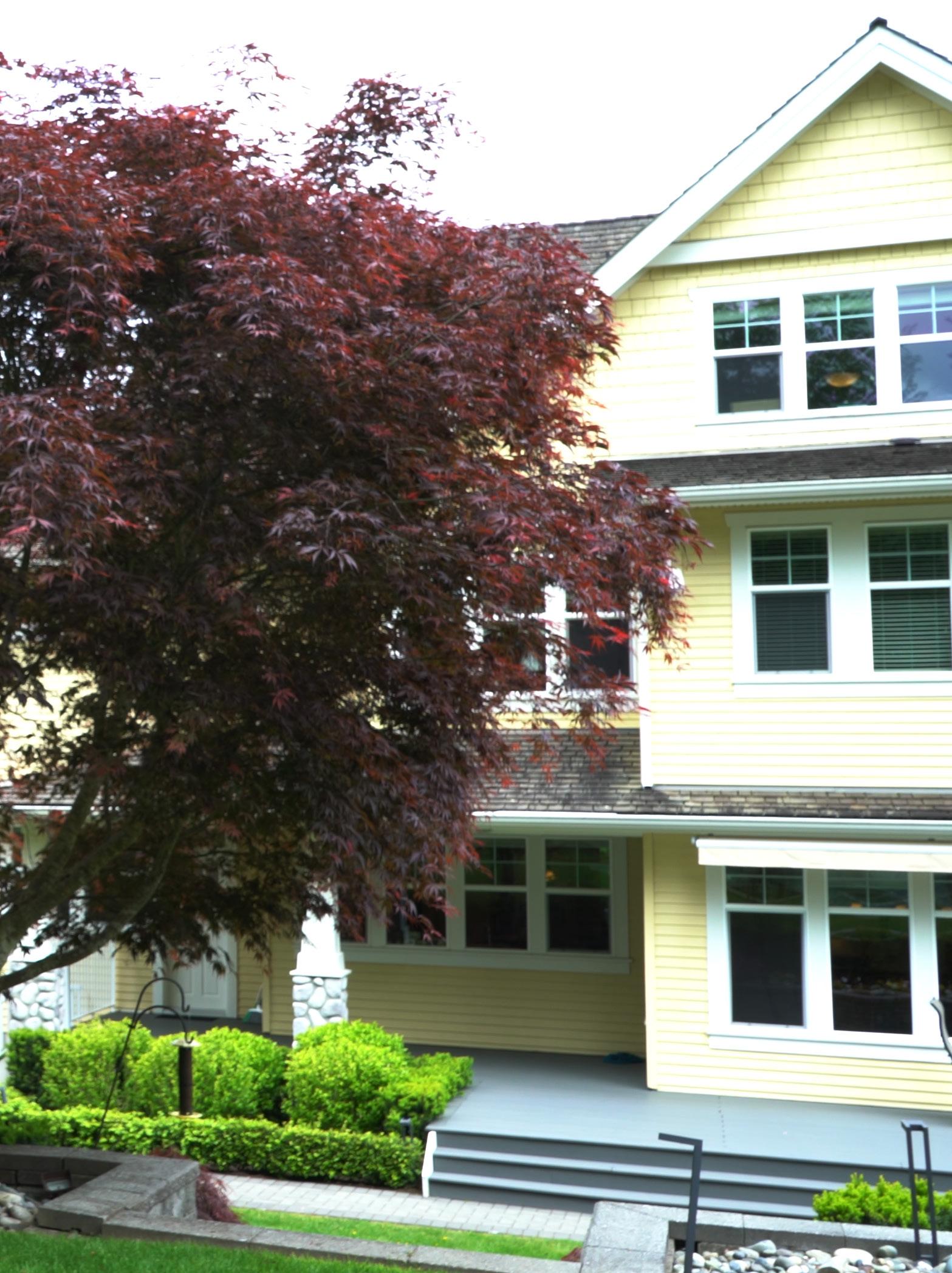

Vanessa: I want to thank you, Scott, for inviting me to your beautiful home. Congratulations on being named a Real Estate Legend.
Scott: Thank you very much. It’s very humbling.
Vanessa: It’s very well deserved. I want to talk about your beginnings because I know your parents grew up in the industry, and you followed suit. Then you decided on a different path. Talk to me about what it was like growing up in the real estate industry with your parents.
Scott: It started in 1964. I was five years old. My mother and father, Bert, 19, partnered with a gentleman, Harry Gillespie, and his son Ken. Ken and Harry were developers and builders of multi-family rental buildings. My parents have a property management background. They partnered up to form what became Gateway Property Management. I was an only child. Because both my parents worked, I tended to follow my mom and dad throughout the business. At one point we had a fire at one of the complexes at three in the morning. I got out of bed to drive to the fire and they told me to go sleep in the back seat. In high school I worked summers, doing janitorial work and painting. I was a lifeguard at one of the pools. I pretty much grew up with the property management background. At the dinner table, that’s mostly what we talked about.
Vanessa: You didn’t exactly jump right into property management. You have a bit of an alphabet soup going on after your name. Let’s go over some of the designations. You have a BA, a CPM, a CPA, and I hear there’s more.
Scott: I have a diploma in urban land economics as well. When I graduated high school, I got accepted into the University of British Columbia. What they called urban land economics was a real estate course. It was a five-year program. This has never happened before and never happened since, but for the midterm in the accounting 101


course, there’s 400 people in the course, I got the top mark in accounting. I thought, now this is easy. I made the decision to switch over to accounting. I wanted to switch universities because I could do it in four years at Simon Fraser University. I did the four years, got my Bachelor of Arts with a major in commerce or business, and articled with a firm called Deloitte for three years, which was the minimum amount you have to article. I wrote my exams, got my chartered accountancy designation, and then realized that accounting wasn’t for me. I went back to UBC and got my diploma in urban land economics. I’m a fellow of the Royal State Institute of Canada. RC is for registered condominium management and the CPM is for certified property manager.
Vanessa: You took all of those and decided to go back into property management. You became the controller at Gateway Property Management. Tell me about the journey coming back to the industry. What was that like?
Scott: After I got my management economics diploma, my father said, “Time to come back.” I came back and started at Gateway as the controller. About a year after that, I indicated to my father I’d like to get a small portfolio and do property management as well. And then I got involved in doing the marketing and started working on bringing in clients. I started in 1983. In 1984, I brought in our second client. That turned out to be our largest client, more than 5,000 units over the years. My parents retired in 1990. At that point, I became president of the company.
Vanessa: Now you are with Tribe because there was an amalgamation in 2021. They handle 50,000 units and over 2,000,000 square feet of commercial property. Talk to me about how this merger came about.
Scott: Tribe Management is a wholly owned subsidiary of a proptech company called Tribe Property Technologies Inc. I was introduced to

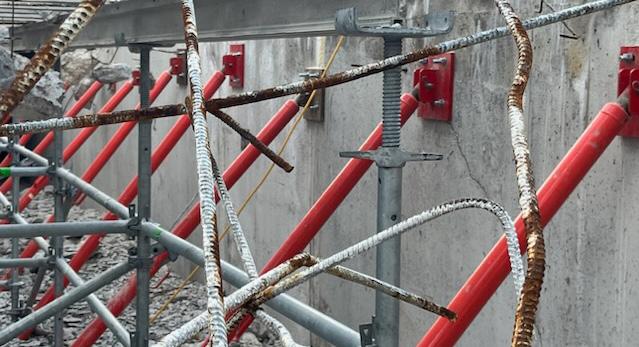



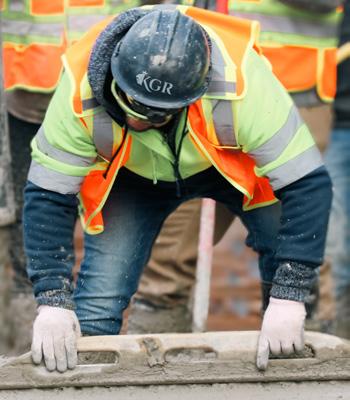
RHB: What do you look for when deciding who to interview?
Vanessa: Well, it’s said the long-lasting impact of a person’s life, events, and actions that took place in the past are what defines a Legend. We’ve called the show “Real Estate Legends – Past, Present, Future,” so we specifically seek to feature leaders who don’t just follow the market, they move it. We look for executive decision-makers who go beyond the boardroom who influence the industry. We’re also transparent that this is not a platform for self-promotion. Our audience is interested is seeing people who’ve earned their seat and drive the conversation in real estate.
RHB: Why are these types of interviews important for our readers?
Vanessa: Your readers, not unlike our viewers, want access to the people shaping the industry. Whether it’s celebrating a successful career or life, we offer an unfiltered look at how real estate legends think, lead, and make the calls that others only analyze after the fact. In a market where timing is everything, our audience craves the kind of insight you can’t Google. These conversations give them that edge, direct from the people setting the pace. It’s not just information. It’s influence in real time.
RHB: Why is it important to talk about issues outside of their real estate careers?
Vanessa: The industry doesn’t just respect success, it respects depth. When we spotlight the personal stories, values, and defining moments behind the title, it reveals the real engine behind a legend’s influence. These conversations show that true leadership isn’t just about the latest deal; it’s about character. For our audience, those
human insights are often the most impactful. They don’t just want to follow your path; they want to understand what drives it.
RHB: Why did you travel to Vancouver to interview Scott?
Vanessa: Because some conversations are too important to have over Zoom. Scott isn’t just a leader; he’s a prominent and influential person in the property management world. When someone has shaped an entire segment of the industry, you go to them. This show is about capturing real presence, real leadership, and real moments, and sometimes that means getting on a plane. Real Estate Legends is built on the respect of the people who redefine the game within a personal setting. If delivering that kind of content to our audience means we have to travel, we’ll travel.
RHB: What stood out for you when interviewing Scott Ullrich?
Vanessa: Scott has that rare combination of operational mastery and quiet leadership; it’s the kind that doesn’t just run companies, it builds culture. What stood out most was his ability to speak candidly about both the pressure and the purpose behind leading a national organization. He didn’t just talk about property management; he talked about people, long-term thinking, and why trust still matters in a fast-moving industry. That level of clarity and conviction is exactly why Real Estate Legends exists. These are the conversations that stick with you long after the cameras stop rolling.

them in 2019. They were turning into a major competitor of ours. They were a startup company but growing exponentially in the Vancouver market. They had a lot of technology I wanted. They started to buy up management companies. They wanted to buy me. A friend and business associate of mine got me and Joseph Nakhla, who’s the CEO for both companies, together and throughout 2020 for the better part of the year during COVID we hammered at it. On December 31, 2020, I signed over the company.
Vanessa: It’s been 42 years you’ve been in this industry; that’s a long time. What keeps you motivated?
Scott: In our industry, no two days are alike. Every day is a new day. Everything’s a new challenge every day. Some simple and exciting. Since I sold to Tribe, I initially moved away from the operations side and got involved in acquisitions and we’ve acquired a number of companies over the last four years in British Columbia and Ontario, plus portfolios from other management companies. About a year ago, I got back into operations temporarily. I’m running both now.
Vanessa: I know your motto is “Managing with integrity, delivering with excellence.” Talk to me about what that means when it comes to the real world, especially in high pressure situations.
Scott: Our business is always high pressure. We’re absolutely there. We don’t set management fees or rates. The market does that. Our focus is on churn. What we want to do is provide the best possible service to our clients. Number one, I think we’ve done a good job of that. We have a number of clients that have been with us in excess of 20 years. The first two buildings we managed back in 1964 are still with us to this day. It’s turned out to be profitable for us and for them.
Vanessa: Let’s talk about more of the personal side of things. I know you love the open road. From what I understand, you’re a member of the Iron Butt Association. Recently you did a thousand-mile ride from Surrey to Palm Springs, California. How long did that take you, and what were you thinking while making that journey?
Scott: How stupid. I was about to join the other bay association. You have to do a thousand-mile continuous ride in 25 hours or less. I left the house at 5 a.m. on whatever day it was, rode 18.5 hours to Palm Springs, straight line. I stopped for coffee, coffee, and more coffee, a little bit of gas, an occasional bio break. At the end of it all, my hands
were like this for about five days before I could really straighten them out.
Vanessa: Let’s talk about your beautiful family. You have a beautiful wife and three daughters. Talk to me a little bit about them. What do they think about your very full life?

Scott: My lovely wife, Cheryl, we actually met at Gateway. Cheryl started there in 1994, and in 2001 we got married. She is the rock behind all of this. I contribute a lot of the success to Gateway and the growth, the Gateway funding, from her support behind me. I have three lovely daughters. All three have graduated in business and various roles. My two older daughters are in sports management, my oldest is the director of communication for the Vancouver Canucks. My oldest is Victoria. My middle child, Sabrina, is the manager of academy operations for the Vancouver Boys Football Club. My youngest daughter, Samantha, is in finance with Manulife Wealth in Montreal.
Vanessa: What do they think of all of this?
Scott: They definitely support me. If any one of the three had any interest in how to manage, I would have never sold the company. But they had their directions. They wanted to go. Of course, I would never stop them from doing that.
Vanessa: We talked in previous conversations about work-life balance, and you said you’re still working on trying to find that. How do you balance hobbies, ambitions, passions, work, and family?
Scott: It’s a work in progress. I’m still a bit of a workaholic. A couple of years back, we decided we’re going to do a bucket list vacation every year. The first year we decided to hop on down to Antarctica. I thought you would definitely be away from work and all the rest of it, fortunately or unfortunately. Thanks to Mr. Elon Musk, they have satellites. I was doing a couple of Teams calls from the cruise ship. We’re working on it, but it’s getting better all the time.



Vanessa: When you’re not in meetings or riding your bike, what can we find you doing?
Scott: I love hockey. My wife and I recently got involved in pickleball. We do that, and the rest of the time is basically relaxing with my wife and the kids when they’re over.
Vanessa: Very nice. I see you got a pickleball court here behind you.
Scott: We installed that during COVID to keep us busy.
Vanessa: With everything you know now Scott, if you could go back and tell your 12-year-old self something, what piece of advice would you give yourself?
Scott: I’m not sure I would change much. I think I would tell my 12-year-old self that when you get older, you start looking to invest more, give up as much as you can. Don’t be in a huge rush to necessarily sell it. Outside of property management, the acquisition of real estate has been very beneficial for myself, the family, and I’m proud of it. I wish I did more of it.
Vanessa: I know you’ve said retirement isn’t in the cards for you yet, but you may take a step back. Maybe take a board seat. What do you think your five-year plan is?
Scott: I have no intentions of leaving Tribe Management anytime soon. I’ll probably be looking for a successor, certainly on the operations side. I hope to continue with the acquisition side of what we’re doing. But I also would like to get more involved on boards. I’m currently on two committees with the Real Estate Foundation of British Columbia, their Finance committee and their Impact Investment committee. I’ve done that for a few years. But I’d like to expand on that a little bit for the industry and get involved in some corporate boards as well.
Vanessa: Let’s talk about the industry. Forty-two years you’ve been in the industry and seen it go up, down, and all around. How have you seen it evolve?
Scott: If you’ve ever seen the movie “It’s a Wonderful Life,” there’s a section where a property manager is referred to as the rent collector. That’s how this industry started. When I started with it, there was overseeing the property and not much else other than maintaining and collecting the rent. But, as legislation changed, we
had to become a little bit more qualified lawyers, paralegals, and experts on capital expenditures. As markets changed, we had to get involved with marketing. Today, social media is a big part of what we do. We’re spending a lot of time on artificial intelligence right now. As property managers, I like to say we’re generalists. We know a little bit about a lot of stuff, but the lot is getting a lot and a lot and a lot more.
Vanessa: What advice would you give to somebody who wants to start out in this industry?
Scott: You want to build strong relationships with your clients, employees, site staff, trades, and suppliers. You want to master the details. It’s important. Our industry involves building trust, communication, and consistency. Always be curious and always be professional and treat every property like it was your home.
Vanessa: I want to wrap up this interview, Scott, with a little game. I know you’re a wine lover, so I’m going to call it Scott Uncorked. Are you a cat or a dog person?
Scott: Definitely a dog. Especially if it’s a golden retriever.
Vanessa: Favorite movie of all time?
Scott: Casablanca. What’s not to love in a bar. You fall in love.
Vanessa: Is there a bucket list place that, if you could ride your motorbike, you would like to go?
Scott: There’s a group of us, we have a local motorcycle club, and we always do a trip. In September of 2019, we were going to do Switzerland and northern Italy, which was a hotbed at that point in time for COVID. That trip got cancelled, or I should say postponed. It’s still on my bucket list, and I’m hoping to do that in the not-too-distant future.
Vanessa: Scott, you’ve built an impressive legacy. You are as comfortable steering a company as you are a motorbike through a thousand-mile ride. It’s very easy to see why you were named Real Estate Legend, and I want to thank you again for having me here, to your beautiful home and to meet your wonderful wife.
Scott: I absolutely enjoyed it. Thank you so much.
Vanessa: Thanks so much, Scott.
HD Supply Offers Maintenance, Repair & Operations products and services. Everything you need. All in one place.

Flexible delivery options, from next-day to scheduled drop-offs at your site.
Save time and money with customizable e-Procurement solutions built for your business needs.
Whether it’s routine maintenance and repairs, property upgrades, or suite turn renovations, our dedicated team is committed to delivering a seamless experience every step of the way.
Thousands of products in stock every day, plus access to thousands more we can source on your behalf. Essential categories available, including:


Trade credit, job quotes & bulk pricing options available. • Appliances • Plumbing • Tools • Flooring • Paint & Sundries • Cleaning & Janitorial
• Grounds Maintenance • Fire Safety

• Hardware
• Electrical
• Cabinetry
• HVAC
• Lighting
• Personal Protective Equipment
• And MORE!
Plus, Exclusive Brands that deliver quality, style & value.

By David Gargaro
Two key trends are affecting the Canadian housing market: a lack of affordable housing (especially purpose-built rentals (PBRs)) and declining demand in purchasing condominiums. Some property developers are trying to solve both problems by converting their condo developments into PBRs. It seems like an obvious solution, as it involves changing one type of multifamily building into another. However, as experienced apartment building developers already know, there’s a lot that goes into getting these types of projects approved and built. There are also many essential differences between the two property types and making the conversion is easier said than done.
For decades, the Greater Toronto and Hamilton area was the centre of Canada’s condo development boom. However, the numbers have shifted considerably in recent years. According to the Toronto Regional Real Estate Board (TRREB), Q1 2025 condominium apartment sales are down 21.7 per cent year-over-year (3,794 vs. 4,843), while listings are up 25.2 per cent over the same time (14,544 vs. 11,614).
Condo developers have taken notice of what is happening in the market. According to Urbanation, from 2022 to 2024, 33 new condo projects that were actively selling have either been converted to rental property developments, postponed, cancelled or placed in receivership. That equals almost 6,800 new condo units that would have come into the market. In the third quarter of 2024, more than 1,100 units that were launched into presale were converted into PBRs.
Fewer new condo projects are beginning construction than in previous years. Urbanation data found that, in the third quarter of 2024, there were 2,163 recorded starts, which is down 13 per cent year-over-year. This is also the slowest third quarter for condo starts in more than 10 years.
Shifting market conditions have significantly affected the appraised value of preconstruction condos, which is making them less attractive to investors. Some projects have seen their appraised values fall by 10 to 30 per cent below their original purchase price. Since financing depends on the property’s appraised value, the buyer must make up the shortfall. Some buyers are walking away from contracts, forfeiting their deposits rather than take on a mortgage for more than the condo unit’s appraised value.
Fewer investors and homebuyers are willing to purchase preconstruction condo units, and more buildings are entering the pool. There’s too much supply and not enough demand to justify the cost of building new condos. As a result, some condo developers are looking to convert their projects to PBRs.



Apartment construction is on the rise. According to CMHC data, nearly half of the multifamily property developments started in 2024 were PBRs, which is the highest share to date. Many developers and investors are making the switch from condos to PBRs. However, there are many economic and financing differences between condo developments and PBRs.
Condo developers often rely on pre-sales of units to secure construction financing and to repay loans before the project is complete. Pre-selling 65 to 75 per cent of units makes it easier to secure construction financing. There also tends to be a higher internal rate of return within a relatively short time frame (i.e., less than six years), which makes condo developments more attractive to investors.
PBR developers usually retain ownership of the building and generate long-term returns through rental income. Since there are no upfront sales, there is a longer investment horizon, which means a longer wait for profitability. Developers need to provide more equity to secure loans, and must also deal with mortgage insurance, loan insurance, pro forma rental assumptions, and other costs. However, developers also have the potential to access government-supported, low interest loans (i.e., via CMHC) and tax relief.
While condo developments tend to be lower risk investments, current market conditions are making them less desirable. The lack of buyer interest has delayed or cancelled numerous condo developments. As a result, some condo developers are converting their projects into PBRs to recoup their investments.
Condo developers have another option: they can sell their projects to apartment developers. It’s becoming a growing trend in the multifamily

property development industry. Brokers are reaching out to condo developers who cannot get financing due to insufficient unit pre-sales to sell their projects (either before they dig or during development) to owners and developers of apartment buildings.
Construction expenses also make it financially challenging to convert a condo development to a PBR. Rents must be set according to what the market will bear to attract tenants. However, high material and labour costs, as well as rising municipal fees, reduce the profitability of building apartments. Depending on the location, it might not be economically feasible to build PBRs. However, there are strategies that can make PBR projects more financially viable, such as replacing underground parking garages with surface parking and using prefabricated components in the construction. Government incentives and tax rebates can also help to improve the ROI on these types of projects.
At the design stage, both building types are similar. Condos and PBRs consist of multiple residential units that require bedrooms, bathrooms, kitchens, and living spaces. They also both require HVAC, plumbing, and electrical systems that support residential living, which is quite different from the requirements for office buildings.
However, there are differences to consider when making the switch. Condos might have higher-end interiors, finishes, and amenities, and tend to have little to no parking, which would be a problem for PBRs. Other issues include:
• Re-evaluating fire and life safety systems based on long-term tenancy standards (e.g., annual suite inspections, smoke alarm access)
• Enhancing acoustic separations (STC ratings) between units for tenant comfort

• Accommodating centralized utility metering and maintenance access rather than individual condo meters
• Reconfiguring amenities and storage to suit rental demographics (e.g., more bike storage, fewer premium amenities)
• Emphasizing long-term maintenance accessibility and simplified service infrastructure
“Condos fall under the Tarion process and Home Warranty Act, which has certain requirements when it comes to building envelope and fire safety inspections and testing, as well as conflict of interest between the engineer of record and other engineers,” said Greg Devine, Vice President Business Development, Egis Canada. “When it’s a rental, there aren’t any guidelines, other than the Building Code, so the process is different. A comprehensive third-party building quality assurance program is highly recommended for rental projects. It offers early insight into design risks and opportunities for improvement, supports appropriate material selection and compatibility, evaluates construction methods, and includes insitu reviews and performance testing.”
The process of switching from condo to PBR construction is more straightforward when there are no shovels in the ground. Before construction of the condo begins, engineers can revise layouts, mechanical, electrical, and plumbing (MEP) systems, finishes, and building envelope details to suit long-term ownership and maintenance (e.g., centralized HVAC, bulk metering, material durability). Value engineering can be done early to reduce lifecycle costs and tailor systems for rental operations. Revised drawings can be submitted for building permits with minimal disruption. “It’s easier to coordinate construction changes before construction begins,” said Hesam Hedayati, Building Quality Assurance and Facility Assessment & Restoration Manager, Egis Canada. “Making these types of decisions allows integration of rental-specific considerations early in structural and architectural coordination.”
However, after condo construction has already started, there is less flexibility, as structural and major systems are often locked in, limiting the ability to optimize for rental use. Mechanical and electrical systems may need partial redesign. There are significant cost implications, as changes can lead to delays, change orders, and inefficiencies in construction sequencing.
Developers may also require revised permit submissions or clarification with authorities depending on scope.
Some of the more complex retrofits and redesigns required include:
• Metering: Shifting from individual unit meters to bulk metering requires redesigning electrical panels, plumbing risers, and utility company coordination.
• HVAC systems: If condo design includes suitebased systems, converting to centralized HVAC for rentals (for ease of maintenance) may require major rework of ducting, mechanical rooms, and shafts.
• A ccess panels: Rentals prioritize maintenance accessibility; adjustments may be needed to relocate or add access to MEP systems.
• Soundproofing and separations: Rentals often demand higher acoustic performance due to tenant turnover and long-term wear. Retrofits to upgrade sound insulation (e.g., additional resilient channels, underlayments) may be complex once drywall or flooring is installed.
• Durability upgrades: Condo finishes are often more aesthetic; rental use may require swapping to more durable materials (e.g., in lobbies, corridors, unit interiors). Retrofitting flooring, cabinetry or hardware after installation adds labour and cost.
“Making the switch during or after construction leads to progressively higher costs, delays, and extensive retrofits due to necessary redesigns and material waste,” said Hedayati. “Redesigning for rental demographics, such as smaller units or more storage, may not be feasible once framing and MEP rough-ins are complete. Any redesign may require updated permit submissions, revised energy models, and city approvals, all of which can delay progress and add soft costs.”
Converting condominiums to PBRs might seem like the obvious solution for dealing with a shifting housing market. However, the process is not that simple, as many experienced apartment developers already know. Different factors add new challenges and costs to the process. Careful planning, early integration of rental-focused design, and proactive engagement with key parties will help to make the conversion from condos to PBRs more successful.


By David Gargaro
If you’re an Ontario landlord, you’ve heard about Bill 10. Rental property owners, managers, directors, and officers can be held legally responsible for failing to prevent illegal drug-related activities from happening in their buildings. However, when used correctly, landlords can turn Bill 10 to their advantage.
On May 1, 2025, the Ontario Attorney General introduced Bill 10, the Protect Ontario Through Safer Streets and Stronger Communities Ac t, 2025. Schedule 8 of the Bill enacts the Measures Respecting Premises with Illegal Drug Activity Act, 2025 (the Act), which directly affects “landlords” (as they are referred to in the Bill). Its purpose is to help the provincial government prevent drug-related crime and strengthen public safety measures. The Act expands the role of landlords of residential and commercial properties in monitoring and controlling tenants’ criminal activities.
The Act includes two main prohibitions:
• Section 2 prohibits landlords from knowingly permitting illegal activity and misuse of the premises. Landlords must take “reasonable measures” to prevent tenants from engaging in a “prescribed offence” (e.g., producing or trafficking illicit drugs).
• Section 3 prohibits landlords from knowingly possessing proceeds from a prescribed offence.
The Act provides law enforcement officers with broad powers to address prescribed offences. They include removing individuals from the premises, closing commercial properties, seizing items linked to criminal activity, restricting access to certain locations, arresting individuals without a warrant under specific circumstances, and imposing penalties for obstructing law enforcement officers in performing duties under the Act.
What constitutes “reasonable measures”? Most rental agreements require tenants to comply with
the law and not engage in conduct that adversely affects residents’ enjoyment of the property and the landlord’s lawful rights and interest. Taking reasonable measures could mean conducting more property inspections, installing additional security cameras, and strictly enforcing leasing regulations. However, doing so might infringe on tenants’ rights as set out under the Residential Tenancies Act (RTA).
Failure to take reasonable measures to prevent illegal activities from occurring on their properties could lead to financial penalties, ranging from $10,000 to $250,000. Repeat offences could mean daily penalties. Landlords may also be held responsible for remediation expenses (e.g., investigation and drug contamination cleanup costs). Taking reasonable measures may increase the risk of losing rental income and additional costs.
Directors of for-profit and non-profit corporations are equally liable under the Act. However, nonprofit directors are not paid the same (or at all) as for-profit counterparts. They also face greater risks, as they often house high-needs populations who may suffer from addiction and have a greater propensity to engage in illegal activities. If they install more expensive security measures, non-profits may be forced to increase rents or reduce service levels, which would negatively impact tenants and reduce the availability of affordable housing.
Landlords can take advantage of ambiguities within the Act. There are no clear definitions of “reasonable measures.” There is also no clear explanation of the statement “No person shall knowingly permit a premises of which the person is a landlord to be used in relation to a prescribed
offence.” Landlords who suspect a tenant is doing something illegal (e.g., manufacturing methamphetamines) can serve the tenant with an eviction notice (Form N6) and file an L2 application with the Landlord and Tenant Board (LTB) for termination of the tenancy.
When the case comes before the LTB, the landlord would rely on their observations and inclinations regarding their obligations under the Act to support the eviction notice (i.e., they took “reasonable measures” to prevent the tenant from engaging in illicit activities on the premises). The tenant may be able to establish the landlord’s observations (e.g., numerous individuals’ comings and goings from the unit at all hours) are not connected to drug trafficking. The LTB would balance the parties’ evidence and determine whether the tenant engaged in an illegal act on the premises. Either outcome will ensure the landlord has taken “reasonable measures” to address “suspicious” conduct.
Notices of termination for an illegal act are not voidable; once such a notice is delivered to a tenant, the landlord may apply to the LTB immediately for eviction. While the burden of proof is that of a civil standard (balance of probabilities), the LTB will scrutinize an illegal act. Unlike an N5 notice, which gives the tenant the opportunity to correct their behaviour after receiving notice of the landlord’s concerns, an N6 is a non-voidable notice.
If the landlord is successful at the N6 hearing for an illegal act, they get rid of a bad tenant. Engaging in the statutory process to address problematic behaviour is not harassment and does not create a separate cause of action for a tenant to pursue against a landlord. Bill 10 provides further support for a landlord acting promptly in issuing a notice of termination at the first indication illegal drug activities are occurring at their property.
Tenant screening processes may need to be amended to be more rigorous; more frequent inspections of rental units may be necessary. The LTB will be forced to grapple with balancing the RTA, which takes precedence over other provincial legislation, besides the Human Rights Code, and newly imposed public safety legislation. An increase in LTB cases due to Bill 10 would force lawmakers to rewrite the Act with more definitive descriptions of requirements.
At the very least, landlords could turn the law in their favour and make lawmakers pay more attention to protecting responsible landlords.
Special thanks to Kristen A. Ley, Partner, Cohen Highley LLP, for sharing her legal expertise.

Coinamatic has a mobile app! No more cards, no more coins, no more hassle!






TONY IRWIN PRESIDENT AND CEO TONY IRWIN PRESIDENT AND CEO
By Tony Irwin, Interim President, CFAA
The Canadian Federation of Apartment Associations (CFA A) is proud to announce an exciting new chapter in its history. Effective immediately, CFA A will operate under its new name: Rental Housing Canada (en français : Logement Locatif Canada). This rebrand reflects the association’s renewed vision and commitment to representing the full spectrum of Canada’s rental housing providers.
The transformation to Rental Housing Canada comes on the heels of a year marked by fresh leadership, team expansion, and a sharpened focus on elevating the voice of rental housing at the national level. The new name more accurately reflects the association’s broad membership, comprising owners and managers of residential rental housing across the country, from large-scale developers to independent rental housing providers.
“The name ‘Canadian Federation of Apartment Associations’ no longer captures the breadth of our work,” said Tony Irwin, newly confirmed Pres inclusive, instantly recognizable, and forward-lookin policy advocacy, and commitment to innovation. Ou better reflects whom we serve and our mission to b unified voice for rental housing across Canada.”
In tandem with the name change, the association is to announce that Tony Irwin, previously serving in a capacity, is now the official President & CEO of Ren Canada. Under Tony’s leadership, the organization w to drive innovation, foster collaboration, and champ that support a strong and stable rental housing mar coast to coast.
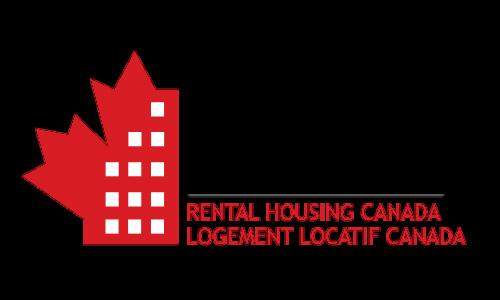









Rental Housing Canada is the leading national association representing Canada’s rental housing sector, directly serving owners and managers of nearly one million residential rental suites nationwide The association advocates on behalf of Canada’s rental housing industry, which provides quality homes for more than 10 million Canadians. The association serves as a hub for information exchange and best practices, supporting the health and prosperity of Canada’s rental housing market and the well-being of communities from coast to coast.

The 2025 CFA A Rental Housing Conference brought Canada’s rental housing community together in Vancouver, where 250 industry leaders, innovators, and stakeholders gathered under the theme Partnering for Progress. Held at the Sheraton Vancouver Wall Centre, this year ’ s event delivered meaningful discussion, valuable insights, and new opportunities for collaboration across the sector.
Over three days, delegates explored the pressing issues and emerging trends shaping rental housing today - from housing supply and affordability to funding models, ESG, and proptech innovation. Thoughtful keynote addresses, practical breakout sessions, and expert panels highlighted the critical role our sector plays in Canada’s housing future and emphasized the importance of working together to navigate change.
Attendees also had plenty of time to connect. From our Buildings Innovation tour, supplier showcase, celebration dinner and partner social events, the atmosphere was energetic and forward-focused - a true reflection of the theme. A highlight of the event was the announcement of CFA A’s rebranding as Rental Housing Canada (RHC).
RHC extends sincere thanks to our speakers, sponsors, partners, and attendees for making the 2025 conference a success. We’re proud to support our members and national network as we continue building a strong and resilient rental housing industry.
We’ll see you in Ottawa for the 2026 Rental Housing Canada Conference - May 26–28, 2026 at the Rogers Centre. Save the date!


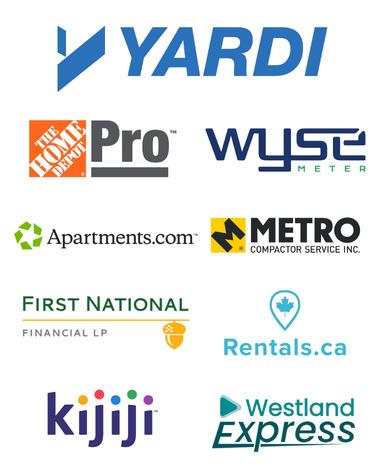
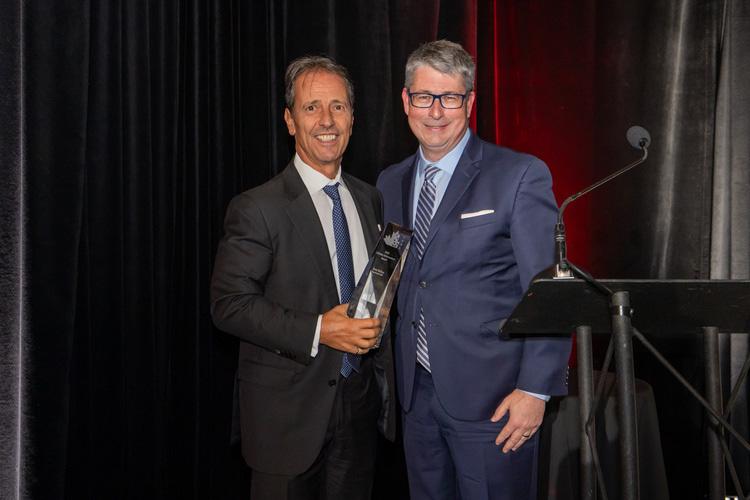




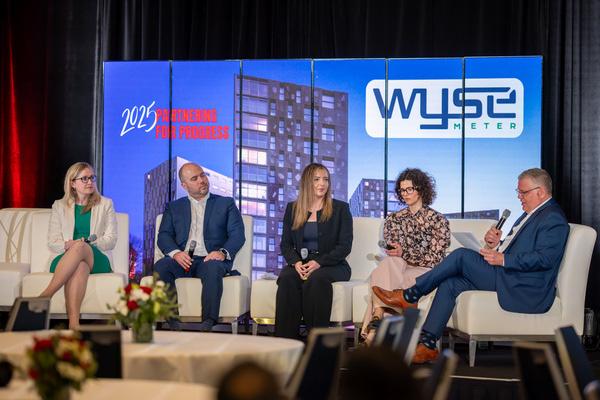


On June 19, 2025, Canada Mortgage and Housing Corporation (CMHC) released new estimates on Canada’s housing supply gaps. The report shows returning to housing affordability levels last seen in 2019 would require building 430,000 to 480,000 new housing units per year over the next decade. This would mean doubling the current pace of home construction in Canada. The report provides specific housing supply gaps for the country’s largest Census Metropolitan Areas (CMAs). It shows how many housing starts are needed above what would be typically need in both the home ownership and rental markets. These estimates are based on previous CMHC research on productivity levels in Canada’s building development industry. According to the report:
• Montreal faces the largest housing supply gap. Since the pandemic, and compared to local incomes, home ownership costs in Montreal have risen faster than any of the large CMAs. Strong rental construction in recent years must be expanded and matched by an increase in new units intended for the home ownership market.
• In Toronto, a 70 per cent increase in home building over the next decade would help to improve affordability. The region lacks home ownership options that match local incomes, despite the recent increases in rental property development.
• In Vancouver, 7,200 additional homes are needed annually above norm, an increase of 29 per cent. In 2023, more than 33,000 housing starts were recorded. This level of construction would help affordability issues for homeowners and renters.
• Calgary had record levels of home construction for three consecutive years and will need 45 per cent more new homes annually above the norm. This would help counter post-pandemic affordability challenges for the home ownership and rental markets.
• Ottawa-Gatineau will have the second largest housing supply gap of the CMAs. The region saw increased home building from 2021 through 2023, but new supply has not kept pace with increased housing demand.
• Edmonton does not require additional supply beyond what is currently projected, as there is sufficient market housing being built to maintain affordability by 2035.
• By province, the most significant housing supply gaps are in Ontario, Nova Scotia, and British Columbia.
To read the full report, visit https://www.cmhc-schl.gc.ca/professionals/housing-markets-data-and-research/ housing-research/research-reports/accelerate-supply/canadas-housing-supply-shortages-a-new-framework.
According to a recent Royal LePage survey (conducted by Hill & Knowlton), 27 per cent of Canadian renters plan to become homeowners in the next two years. This statistic increases to 40 per cent among renters aged 18 to 34. At the same time, 69 per cent of renters do not plan to buy a home soon, and more than half of those respondents do not have sufficient income to buy a property where they want to live. Fifty per cent of renters who plan to buy a home in the next two years will have a down payment of less than 20 per cent; only 15 per cent of renters will put down more than 20 per cent. More than half the respondents (53 per cent) will use accumulated savings for their down payment, 46 per cent will use the First Home Savings Account, 29 per cent will draw on their RRSPs, and 25 per cent will use a financial gift or inheritance.
Before they signed or renewed their current lease, 29 per cent of renters considered buying a property. Of those respondents, 41 per cent stated they did not have enough money for a down payment, which led them to keep renting. The key motivating factors for continuing to rent were high interest rates (33 per cent) and high property prices (30 per cent). Twenty-two per cent of respondents continued to rent while saving for a down payment, while 20 per cent did not qualify for a mortgage. About four in 10 Canadian renters (36 per cent) spent up to 30 per cent of their net income on monthly rents, while 37 per cent of renters spent between 31 and 50 per cent of their income on rent. Vancouver and Toronto, which are the most expensive housing markets in Canada, had 27 and 16 per cent, respectively, spending more than half their income on rent.
To view all the data, visit https://www.royallepage.ca/en/realestate/news/more-than-a-quarter-of-renters-incanada-plan-to-purchase-a-home-within-the-next-two-years/.
On May 27, 2025, François-Philippe Champagne, Minister of Finance and National Revenue, tabled legislative proposals to amend the Excise Tax Act to introduce a new GST rebate. First-time home buyers will be able to save up to $50,000 on a new home, as the GST will be removed on new homes up to $1 million and reduced on new homes between $1 million and $1.5 million.
If you are a first-time home buyer, you may be eligible for the FTHB GST Rebate if:
• You buy a new home from a builder
• You build, or hire someone else to build, a home on land you own or lease
• You buy shares of a co-operative housing corporation
The FTHB GST Rebate will apply to the same types of housing and apply similar eligibility criteria and conditions as the existing GST/HST New Housing Rebate, with certain modifications to ensure that the rebate is targeted at first-time home buyers.
To qualify as a first-time home buyer, an individual must:
• Be at least 18 years old
• Be a Canadian citizen or a permanent resident of Canada
• Not have lived in a home, whether in or outside Canada, they owned or that their spouse or commonlaw partner owned in the calendar year or in the four preceding calendar years
Together with the existing GST/HST New Housing Rebate, the FTHB GST Rebate would provide for a rebate of 100 per cent of the GST on new homes valued up to $1 million. It would be phased out for new homes valued between $1 million and $1.5 million.

















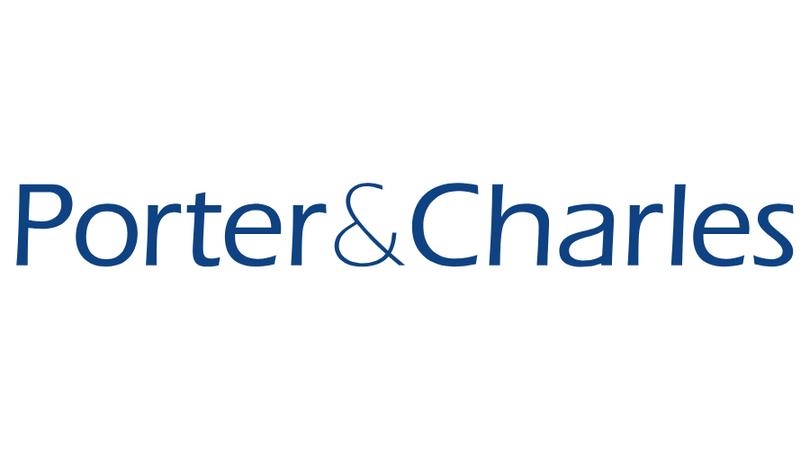
As we move further into the year, I’m energized by the spirit of collaboration that continues to drive FRPO’s work and our sector forward. The newly re-elected PC government has set a renewed focus on Ontario’s housing challenges, and I am pleased to share that FRPO is working closely with key decision makers to ensure that professional rental housing providers remain central to the solution.

Our Board’s recent meeting with Attorney General Doug Downey allowed us to discuss ongoing improvements to the Landlord and Tenant Board (LTB) processes, as well as Bill 10, important steps toward ensuring a fair, efficient, and balanced system for both providers and residents. In addition, FRPO’s Board had the opportunity to meet with Minister of Municipal Affairs and Housing Rob Flack to discuss Bill 17, which aims to accelerate building and streamline approvals across Ontario. Continuing this dialogue, earlier in the month I also met with Associate Minister Graydon Smith to emphasize the crucial role of purpose-built rentals in tackling the province’s housing needs.
These meetings reflect our ongoing commitment to building and strengthening relationships with government at every level. As Ontario’s leadership sets to work on delivering much-needed housing, FRPO will continue to be an active, constructive partner, ensuring our members’ perspectives are heard and advocating for policies that are practical, effective, and focused on real solutions.
Our commitment to advocacy extends beyond provincial borders. Recently, I joined Ireland’s The Hard Shoulder radio show to discuss the parallels between the housing challenges faced in Canada and Ireland. In addition, I was pleased to contribute a letter to the editor in The Globe and Mail, setting the record straight on the important role of institutional landlords and correcting misconceptions about their impact on rental prices.
As always, I want to thank our members for their continued dedication and professionalism. Your willingness to share your stories and insights helps us champion the value and excellence of Ontario’s rental housing sector, both at home and abroad.
Together, by fostering strong partnerships and amplifying our collective voice, I’m confident we can make real progress—delivering more homes, protecting tenants, and building a thriving, resilient rental housing market for all Ontarians.
Tony Irwin, President and CEO, FRPO, and President, RHC
As we move through the summer of 2025, the Let’s Build Ontario campaign is building on momentum and our focus remains clear: to strengthen Ontario’s rental housing sector by advocating for effective, pro-housing policies and amplifying the stories and expertise of our members. Over the past months, our campaign has seen an outpouring of powerful member stories. These firsthand accounts continue to highlight the dedication, innovation, and resilience of those who make quality rental housing possible across Ontario. As we double down on sharing these experiences, our goal is to humanize the sector and underscore the vital role providers play in building strong, vibrant communities. We encourage all members to submit their stories, which will be featured across our social media platforms and website throughout the summer. This year has also brought changes at both the federal and provincial levels, with new ministers now responsible for housing. Regardless of these shifts, Let’s Build Ontario remains unwavering in our commitment to champion solutions that address housing affordability. We are focused on advancing purpose-built rentals and engaging with all levels of government to do so. In addition to member stories, the campaign continues to call on members to promote the campaign by linking to the Let’s Build Ontario website. This will help amplify the campaign’s reach with search engine optimization, which will bring greater visibility to new audiences and drive supporter growth and engagement. The campaign also continues to amplify the voices of subject matter experts who support tools and policies that remove barriers, stimulate development, and drive investment in purposebuilt rental housing. Their insights help inform the public, shape policy discussions, and reinforce the campaign’s advocacy priorities.
The need for accessible rental housing is more urgent than ever. Let’s Build Ontario will continue to push for measures that encourage investment, streamline processes, and support affordability for all residents. We ask members to help us widen our reach—share your story, promote the campaign by linking to letsbuildontario.ca, and engage with us on social media. Together, we can keep the conversation going and push for policies that create a stronger, more sustainable rental housing sector for every Ontarian.
FRPO welcomed over 100 members and industry partners to our Annual General Meeting on May 28, kicking off the day with a networking breakfast and engaging conversations about the future of Ontario’s rental housing sector.
We were honoured to host the Hon. Rob Flack, Minister of Municipal Affairs and Housing, and appreciated his thoughtful remarks and engagement with our members. The meeting was chaired by FRPO President & CEO Tony Irwin, with Board Chair R. Jason Ashdown providing an update on recent Board activities and priorities for the year ahead.
We are pleased to welcome two new directors to the FRPO Board:
• Penny Colomvakos, Starlight Investments
• Michelle Calloway, Minto Group
We also congratulate the following members on their re-appointments: Gloria Salomon, Geoffrey Younghusband, Colin Martin, R. Jason Ashdown, and Allan Weinbaum.
As ESG performance, cost control, and resident satisfaction become increasingly important for rental housing providers, Earth Day 2025 offered a timely opportunity to spotlight solutions that deliver on all three. To mark the occasion, FRPO and the Canadian Certified Rental Building™ (CRB) Program hosted a national webinar titled “Power, People, Planet,” focused on practical sustainability strategies tailored to the multi-residential sector. The session featured expert-led presentations on energy efficiency, resident incentive programs, and circular waste practices, all designed to help owners and managers improve building performance, reduce utility costs, and support ESG goals.
Presented by: Mert Temiz, Senior Manager, Energy – Quwa Smart Services
Multi-residential buildings are responsible for a significant portion of energy waste—often more than 25%. Mert Temiz outlined how property managers can address this through costeffective retrofits and utility engagement. His recommendations included:
• Upgrading to LED lighting for quick payback and reduced maintenance
• Installing high-efficiency windows and insulation to improve thermal performance
• Leveraging heat pumps and solar PV systems where feasible
• Participating in energy audits and incentive programs to guide investments
Mert also highlighted that Toronto has greater solar generation potential than many parts of Europe, suggesting untapped opportunities for electrification and renewable adoption.
People: Supporting Residents Through No-
Presented by: Antonio Centritto, Senior Conservation Account Manager – CLEAResult Canada
Antonio Centritto shared how the Energy Affordability Program (EAP) and Home Winterproofing Program (HWP) offer fully-funded upgrades for eligible buildings and residents, including renters. These programs provide:
• Basic upgrades like LED lighting, smart thermostats, water-saving fixtures, and power bars
• Comprehensive upgrades such as insulation, draft-proofing, Energy Star ® fridges and freezers, and even heat pumps in some cases
One participating 86-unit building received 74 new fridges and 99 LED installations, all at no cost. CLEAResult supports bulk assessments, flexible scheduling, and end-to-end coordination with property managers, making it easy to implement portfolio-wide.
Presented by: Gerald Grant, Founder – Innovate Waste Solutions Corp.
Waste diversion in multi-residential buildings is a challenge, but also a major ESG opportunity. Gerald Grant introduced the 5 Cs of circularity as a practical framework for improving waste management:
• Capacity – Right-size bins and ensure proper containment for all waste streams
• Convenience – Make drop-off points accessible, safe, and intuitive
• Communication – Use welcome packages, signage, and digital tools to inform and engage residents
• Cleanliness – Maintain waste areas to encourage participation and reduce pests
• Consistency – Keep messaging and processes aligned even through staff or resident turnover
Gerald also shared innovative examples, including:
• Onsite composting via FoodCycler and Lomi
• Donation partnerships for textiles and furniture
• E-waste collection through Recycle My Electronics and commercial providers
• Reusable packaging with Muuse and Friendlier The takeaway: even small actions—like spring cleaning drives or centralized signage—can drive measurable improvements in diversion and resident engagement.
FRPO Charity Golf Classic
Date and Time: July 22, 2025 | 8:00 am – 6:30 pm
Another year, another incredible golf tourney! We’ll be hitting the links in support of Interval House on July 22. This event will take place at Lionhead Golf Club with registration opening in late spring. This event sells out quickly, so keep an eye out for your emails for registration opening.
Women in Rental Housing Luncheon
Date and Time: August 21, 2025 | 11:00 am - 2:30 pm
The Women in Rental Housing Luncheon is returning to the beautiful Old Mill Toronto for the afternoon dedicated to inspiration, connection and community. This signature event brings together women from across the rental housing industry to share ideas, build meaningful relationships and celebrate the impact of women in the sector.
This year's guest speaker is Cher Obediah, who is Ojibway and Mohawk, Turtle Clan from Six Nations of the Grand River Nation. She is a multidisciplinary creative as filmmaker, speaker, author, and artist. Cher is a heart-centred creative empowering others to shine their brightest light. She's a visionary who believes self-knowledge is a catalyst for healing and collective change. With a background in theatre, television, and film, she lends her energy to projects that focus on holistic health, Indigenous culture, domestic violence, youth-driven initiatives, and content that inspires others to recognize their worth.
FRPO is the largest association in Ontario representing those who own, manage, build and finance residential rental properties.
For membership inquiries please contact Lynzi Michal, Director, Membership & Marketing
Federation of Rental-housing Providers of Ontario 801-67 Yonge Street, Toronto, Ontario M5E 1J8 416-309-8744
lmichal@frpo.org www.frpo.org

Since MetCap Living established itself as a leader in property management, we have routinely been asked one, simple question; “Can you help us run our property more effectively?” And, for well over thirty years, the answer has remained — Yes, we can! Our managers are seasoned professionals, experienced in every detail of the day to day operations and maintenance of multi-unit rental properties. From marketing, leasing, finance and accounting, to actual physical, on-site management, we oversee everything.
Guaranteed vacancy reduction, revenue growth and net profitability — when you’re ready to discuss a better option; we’ll be there. You can count on it.
Kazi Shahnewaz Director, Business Development
Office: 416.340.1600 x504
C. 647.887.5676
k.m.shahnewaz@metcap.com
www.metcap.com
RHSK discusses what's new at the association, its latest education program, and Indigenous Economic Development Day. pg. 49
EOLO discusses the use of water monitoring devices, new water, sewer, and stormwater rates, and the results of the anti-renoviction study. pg. 53
ARLA discusses the Landlord Resource Tradeshow and ARLA Achievement Awards, as well as what's happening in Edmonton and Calgary. pg. 57
LPMA discusses how regular maintenance inspections can help to control pest problems in their buildings. pg. 61
Check out the digital version of RHB Magazine for news from HDAA and RHPNS.



Complimentary technical help and incentives up to $200,000†

The Affordable Housing Multi-Residential Program provides incentives for energy assessments and high‑efficiency equipment, plus free in suite upgrades that lower energy costs, reduce greenhouse gas emissions and improve comfort.
*
Incentives for building upgrades and more:
• Boiler optimization
• Building automation controls
• Variable frequency drives
• Water heaters
• Hybrid heat pumps
• Free heat reflector panels
• Reduce energy, maintenance and operating costs.
• Control costs more effectively with automated systems.
• Improve the energy efficiency of your building.
• Enhance resident comfort, health and well-being.

As we look ahead to the remainder of 2025, Rental Housing Saskatchewan (RHSK) is optimistic about the opportunities on the horizon. With new educational programs under way, expanded advocacy efforts, and a growing network of members, our association is well-positioned to continue advancing the interests of Saskatchewan’s rental housing sector.
We remain focused on promoting housing supply, ensuring fair regulation, supporting landlords through practical resources, and fostering a connected, engaged membership community.

We extend our sincere thanks to each of our members for your continued support and participation. It is through your involvement that RHSK can do this important work, and we look forward to connecting with you at upcoming events, workshops, and advocacy initiatives throughout the year.
The strength of an association lies in its people: the members, volunteers, directors, and staff who work together to move the industry forward. At RHSK, we are proud of what we have accomplished in the past year, and even more excited about what we will achieve together in the months ahead. Thank you for being part of the RHSK community.
- Landon Field, CEO
As we move further into 2025, RHSK continues to build momentum, drive advocacy, and strengthen services for rental housing providers across the province. It’s been an exciting and productive season for our association, marked by new team members, valuable events, advocacy milestones, education initiatives, and leadership growth.
This update captures the highlights and progress of the past several months, reflecting our unwavering commitment to supporting Saskatchewan’s rental housing industry and fostering collaboration within our sector.
Welcoming a new face to the RHSK team
RHSK is pleased to announce the addition of a new team member to our growing organization. In May, we welcomed Emily Young as our new Member Services Coordinator. Emily will take the lead on coordinating

Emily Young
events, supporting members, and enhancing the services our association provides. With a strong background in customer service and community engagement, Emily brings energy and experience to this important role. She will serve as a direct point of contact for member inquiries, assist in organizing workshops and networking opportunities, and help ensure members are equipped with the resources they need to thrive. We encourage all members to reach out, introduce themselves, and connect with Emily in the months ahead.
RHSK
the CFAA
In May, RHSK proudly participated in the annual conference hosted by the Canadian Federation of Apartment Associations (CFAA), now officially rebranded as Rental Housing Canada. The national rebrand signals an exciting new chapter for our sector, and RHSK is pleased to support this inclusive, refreshed identity that better reflects the diversity of Canada’s rental housing community. Our CEO, Landon Field, was joined at the event by Board Directors Sheena Keslick and Lorie Houle. The conference provided an excellent opportunity to engage with peers from across the country,

exchange insights on industry trends, and connect with innovative service providers offering valuable tools and solutions for rental housing operators.
Sessions at the conference addressed key topics including market conditions, operational efficiency, affordability strategies, tenant relations, and government relations, which are all highly relevant to the Saskatchewan market. Events like these strengthen our collective knowledge and ensure that Saskatchewan’s voice is represented in national housing policy conversations.
A major milestone for RHSK this spring is the launch of our brand-new online education program: Landlord Legal Education: Know Your Rights and Understand Your Responsibilities.
Developed in response to member feedback and an identified need for accessible, reliable legal education, this online certificate course equips landlords and property managers with essential knowledge of the Residential Tenancies Act, 2006 and related regulations in Saskatchewan. The course covers key topics including tenancy agreements, rent increases, deposits, notices to vacate, eviction processes, maintenance responsibilities, and navigating disputes. Delivered entirely online, the program is designed to be practical, user-friendly, and available to members no matter where they are in the province.
We officially launched the education program at a Member Appreciation Event on June 24 at Lucky Bastard Distillery in Saskatoon. It was a fantastic evening of conversation, connection, and celebration, as members gathered to network and learn about this valuable new resource. We look forward to seeing many members complete the course in the months ahead.
Ticket giveaways: Supporting community, supporting our members
As a thank-you to our engaged and growing membership, RHSK has been offering members a chance to win tickets to Saskatchewan Roughrider games throughout the summer. Members can earn entries by attending RHSK events or referring new members to join our association.
These giveaways are a fun way to show appreciation for our membership community, and a great reminder that RHSK isn’t just about advocacy and education: it’s about connection, too.
engagement
Advocacy continues to be a cornerstone of RHSK’s mission. In recent months, CEO Landon Field attended Indigenous Economic Development Day at Wanuskewin, representing Saskatchewan’s rental housing sector and affirming our commitment to working with Indigenous communities, organizations, and leadership on housing solutions.
The CEO also held productive meetings with stakeholders and elected officials in government and opposition to advance the interests and priorities of our members. Discussions focused on increasing supports for excessive damages, promoting housing supply initiatives, improving regulatory efficiency, and making sure rental housing providers’ and landlords’ voices are heard.
These advocacy efforts are critical to ensuring the unique needs and perspectives of Saskatchewan’s rental housing industry are understood, respected, and addressed at every level of decision-making.
RHSK will hold its Annual General Meeting (AGM) on June 19, 2025, marking the conclusion of what has been a record-setting year for our organization.
Thanks to the hard work of our team, the dedication of our Board of Directors, and the loyalty of our
members, RHSK has achieved substantial growth in both membership and program delivery over the past year.
Our financial position is strong, our membership is expanding, and our influence as an advocate for the rental housing sector continues to grow. The AGM will offer members an opportunity to review the year’s accomplishments, participate in important association business, and help shape the direction of RHSK for the year ahead.
RHSK is also pleased to partner once again with the Office of Residential Tenancies (ORT) to host a virtual workshop focused on eviction processes in Saskatchewan.
The Evictions Online Workshop will be held on July 9, 2025, and will cover essential information on serving notices, attending hearings, and complying with provincial legislation. As evictions are one of the most sensitive and strictly regulated aspects of property management, we strongly encourage landlords and property managers of all experience levels to attend.
Workshops like these are a core part of RHSK’s commitment to providing practical, timely education that helps our members manage their properties with confidence and care.
This spring, RHSK held its most engaged Board of Directors election in association history, with a record number of candidates and votes cast.
We’re pleased to congratulate the following directors on their re-election:
• Laura McNern, North Prairie Developments
• Lorie Houle, Saskatoon Real Estate Services
• Tim Thompson, Stone Ridge Properties
• Jamie McDougald, Deveraux Apartment Communities
• Brent Sjoberg, Avana


We also warmly welcome new director Brett Ackerman, a realtor and private rental housing operator with extensive experience in residential property management and real estate investment. Joining them are our returning directors:
• Donna Singbeil, Singbeil Property Management Consulting
• Amanda Bolan, K+A Capital
• Jeff Trapp, Journeypoint Enterprises and REAL Property Management
• Chris Lee, Squire Property Management
• Matt Roberts, Riverbank Development Corporation
This dynamic and experienced Board reflects the diversity of Saskatchewan’s rental housing community, from large multi-family operators to private landlords, consultants, and real estate professionals. Together, this leadership group will guide RHSK through another successful year of advocacy, education, and member service. We would like to thank Ramona Maraj and Gavin Little for their years of service and dedication to the association, and who will be leaving the Board this year. We would also like to thank Sheena Keslick for her years on executive who will be moving into the Past Chair role. The association will also welcome Amanda Bolan as the new Board Chair for 2025.
As the voice of landlords in Saskatchewan, we deliver knowledge, promote best practices, and advocate for a healthy and resilient rental housing industry. We are the leading community of industry professionals who are proud to provide safe, high-quality rental homes for the people of Saskatchewan.
We work to ensure Saskatchewan’s rental housing industry meets the needs of renters, owners, and managers. Our team is dedicating to serving our members in any way that we can.
Landon Field, Chief Executive Officer
1705 McKercher Dr, Saskatoon, SK S7H 5N6
eo@skla.ca
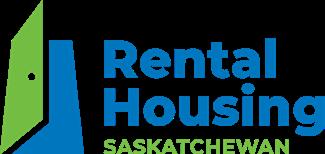



Mandatory organics recycling is now one year into its four-year rollout in the multi-family sector in Ottawa. An update was provided at the EOLO Education Event on April 16.
Set out below are reports on the water monitoring issue dealt with by the City’s Environment Committee in May, along with new water, sewer, and stormwater rates to take effect in 2026.
There are also updates on the City’s anti-renoviction study, and the new Property Standards search tool, which was also addressed on April 16.
- John Dickie, Chair, Eastern Ontario Landlord Organization
Numerous EOLO members use water monitoring devices to alert them if their properties suffer from water line breaks or other excess water use. The devices typically send immediate alerts to key operational staff so they can act immediately to turn off water and reduce water damage to properties. That helps prevent increases in insurance rates. The alerts also limit damage to tenants’ belongings and reduce bills for excess water consumption.
Those benefits came under risk during the City of Ottawa's recent review of the Water By-law. Focusing solely on issues for the City, City staff initially recommended amending the Water By-law to ban the attachment of any devices to City water meters unless the devices were approved by the City. None of the devices in use were approved by the City, even though several of them have been in use for five or six years.
City staff alleged some of the devices interfere with the proper operation of the City’s meters in reporting water consumption accurately, and the City’s staff and contractors sometimes damage the devices when they service the City’s meters.
The most commonly used devices are Flowie and Flowie-O water flow sensors provided by Alert Labs. Alert Labs indicated that its devices did not interfere with the City’s meters, and they can be readily removed and reattached if any servicing is needed for the City meter. A survey of major EOLO members did not disclose any reports of problems, either with negative effects on the City’s meters or with any damage to the Alert Labs devices.

EOLO took the position that what was needed was a win-win solution. Obviously, any devices should not interfere with the proper operation of City’s meters. But in addition, we also want the ability to receive rapid alerts about excessive consumption, both to avoid excess water use and to minimize damage by flooding. Both the staff and Councillors agreed with those goals.
The water monitoring issue was resolved on a friendly basis, with the agreement of the City staff to work with Alert Labs to test its devices, address any issues, and then authorize them, both for current installations and future installations. EOLO made the point that many of the devices have already been attached for five or six years. The plan is not to order removal unless a problem is proven, which Alert Labs thinks is highly unlikely. Alert Labs has met with City staff and will provide samples of their devices for testing. The City expects its approval of devices to take “a couple of months”. After approval, the City will want Alert Labs to provide them with a list of addresses where the devices are installed. Alert Labs will be in touch with its customers about that requirement.

After approving the Alert Lab devices, the City will move on to approving other devices, either by approving specified technology or by approving a list of named devices.
EOLO made the point that as rental providers we are currently most concerned about the ability to continue to use the Alert Labs devices. We also want a wide array of devices and technology to be approved for use to encourage technological advances, good client service, and competitive pricing. The councillors all seemed to take in all those issues.
EOLO thanks its members who responded quickly to EOLO’s mini-survey so that we were informed for the discussions before and at the Environment Committee meeting. We also thank Alert Labs and City staff for working with EOLO to reach what appears likely to be a solution satisfactory to all parties.
The water, sewer, and stormwater rates have also been revised with the new rate structure to effect in April 2026. In summary, compared to other types of properties, multi-residential properties receiving City water services are still to pay relatively low fixed charges, which come with relatively high volumetric rates. (That was the preference expressed by the EOLO Board, since it enables water saving measures to reduce a property’s water and sewer bill.)
To some degree, the City has increased the proportion of water and sewer charges that are fixed, especially for residential properties (of six units or fewer) and in the commercial and industrial sectors. Water and sewer charges for rental apartments will increase, but the increases will largely be offset by decreases in stormwater charges.
The City has made the stormwater charges align more closely with the requirement for stormwater handling that different properties impose, due largely to variations in their impermeable area (which is what creates a lot of run-off in a short period of time). Shopping malls will pay much more, due to their large parking areas and roof areas. Office towers will pay much less than they do now because their roof areas are relatively small. Likewise, condo and residential rental towers will pay much less than they do now in stormwater charges.
The average total of water, wastewater, and stormwater costs among residential properties is to stay the same under the new rate structure, while the average total bill increases about 2 per cent among multi-res properties and about 5 per cent among commercial properties. There will be movement between properties within property types.
EOLO expects to monitor the effects of the new rate structure and the annual increases in the rates based on the new structure.
The January 2025 issue of Regional Association Voice reported at length on the City’s consideration of a study of an anti-renoviction by-law along the lines of those new by-laws in Hamilton, Toronto, and London. In January 2025, the City of Ottawa decided to give the Province time to consider and tell the City when it would bring in the reforms to the renovation notice provisions. The hope was that the Province would implement the new rules, and the City of Ottawa might not need to act (or at least would have a less serious issue to address).
At this time, it appears that the Province has not announced any plan to implement the reforms, which means the City will be going ahead with its own study. A general City-wide housing needs assessment has been done, as part of the updating of the Ten Year Housing and Homelessness Plan. That will avoid some of the work that City staff thought might be needed for the anti-renoviction study.
EOLO will communicate with City staff about the issues in major repairs and renovations, since as an industry we need to be able to perform certain major repairs, but we also want to avoid the public relations black eye that illegitimate actions create.
After several years in development, the City has launched its new Property Standards search tool. Council directed that the search tool be created as a tenant/consumer protection tool when they voted down landlord licensing five years ago. Property owners, managers or prospective tenants can search for a property through the search tool available by searching “City of Ottawa Property Standards search tool”. The information is reported for a whole building, not unit by unit.
Since the decision to proceed with the search tool, EOLO provided input on it to City staff. Our input resulted in a major improvement in the search tool. In Vancouver and Toronto, the equivalent search tool lists all the complaints made by tenants whether verified or not. EOLO told the Ottawa by-law staff that that would be unfair because tenants, often do not report problems to landlords before calling by-law, and sometimes tenants report what they perceive to be a problem that is not an actual violation. The By-law Services Policy staff agreed with EOLO that the search tool
should NOT report mere requests for service (e.g., complaints) from tenants.
Property standards violations are only to appear in the search tool if a property standards officer has determined that there has been a violation by the landlord (not necessarily fault, but a deficiency since there can be a deficiency that the tenant did not report to their landlord). Moreover, the search tool is not to include valid complaints where the by-law officer contacts the landlord by phone or email or other means without issuing an order. Ottawa’s by-law officers often do that, especially when landlords respond reasonably to such outreach. It’s easier and quicker for the officers, and the problems are fixed more quickly. Violations are only to be recorded in the search tool if the by-law officer considered that enforcement steps were necessary and took them (e.g., issuing a City work order).
There is also language that reminds users that, because of the number of units involved, a violation is more likely to be found in a building of 200 units than a building of two units. (Getting the building unit count data from the Municipal Property Assessment Corporation resulted in a long delay in implementation, although that was not EOLO’s purpose in suggesting the information be presented.)











Summer is now in full swing, and the weather is looking much better. While some people are taking Fridays off and heading off for summer vacations, ARLA continues to work on behalf of our membership because our landlord members don’t take days off in providing safe, affordable housing. Although the federal election is behind us, we have municipal elections in Edmonton and Calgary coming up in October. There is always work to be done with respect to advocating for our membership at all levels of government.

Looking ahead to the rest of 2025, we’re focused on delivering value with fantastic events (like our annual Member Appreciation BBQ), providing more opportunities for members to connect, and publishing timely updates on the local, provincial, and federal issues that matter the most to Alberta landlords. We will continue to keep you informed, engaged, and empowered so you can maintain a thriving business in an ever-changing economic environment.
- Donna Monkhouse, Executive Director
As you may be aware, on April 25, we held our 2025 Landlord Resource Tradeshow & ARLA Achievement Awards at the River Cree Resort and Casino. What a great event! More than 700 people attended the event, and the 51 exhibitors had a great experience interacting with the attendees. The Achievement Awards Luncheon had a full house with more than 260 people recognizing the people who made a great impact in our industry. The winners of the 2025 ARLA Achievement Awards are as follows:
• Property Manager of the Year – Jody George GEF Seniors Housing
• Senior Leader of the Year – Dinika Matychuk, Leston Holdings
• Site Employee of the Year – Evan Jasmin, Avenue Living
• Rental Housing Provider of the Year – Deveraux Apartment Communities
• Small Rental Housing of the Year – Hyphen Group
• Not for Profit Housing Provider – GEF Seniors Housing
• New Development of the Year – Edgemont Flats
– Leston Holdings
• Service Member of the Year – World Floorcoverings
• Rookie of the Year – Connor Klak, Leston Holdings
• Support Staff of the Year – Christian Koffi, Right at Home Housing
• Renovation over $250,000 – Whitehall Square, Boardwalk
Thank you to all our sponsors, including Christensen & McLean Roofing Co. and SingleKey as our Main Event Sponsors, and Home Depot as our Trade Show bag sponsor.
Edmonton’s municipal election is scheduled for October 20, 2025. At present, several people are registered to run for Mayor. Two of the more experienced candidates include Andrew Knack, Edmonton’s longest-serving City councillor, and Tim Cartmell, who has been on council since 2017. The deadline for nominations is September 22. Edmonton City Council is considering a bylaw to allow large and medium-scale multi-unit developments in mature neighbourhoods. The goal is to help address the City’s growing housing needs. This initiative focuses on areas near the Valley Line West LRT expansion to increase housing density and make better use of existing infrastructure. Rental housing advocates and other supporters have argued that more housing options are needed to meet the demand and control rising housing costs. Mayor Amarjeet Sohi has stated that increasing density in established neighbourhoods can reduce tax costs through maximizing the use of public investments in transit and amenities. Opponents to the bylaw have argued that the move would negatively impact older homes and their communities. City council is currently reviewing public feedback to help inform proposed zoning changes.

ARLA is continuing its efforts to improve the waste removal system with the City. We will continue to advocate to have waste removal put back into property managers’ hands.
The City of Calgary has announced the addition of over 1,500 new homes to its downtown area through an expanded incentive program that seeks to convert vacant office spaces into residential units. The initiative is part of the Downtown Calgary Development Incentive Program, which is designed to increase housing availability and repurpose underused commercial properties. Developers receive financial incentives to turn empty office buildings into residential spaces. Density bonusing enables developers to add more suites, floors or square footage in exchange for investments in parks, public arts, community investment funds, affordable housing, and other community amenities.
The Residential Tenancies Act (RTA) in Alberta is being updated to include a clause on electronic communication. This amendment will allow for electronic service of notices, orders, and other documents in specific circumstances. To be considered, the electronic method must be able to produce a printed copy of the notice and must be used with the recipient’s electronic address. The update to the RTA is currently awaiting its third reading, which would be the final stage of becoming law. Other changes are still under way with the Alberta Law Reform Institute and will take time.
If you invest in rental properties in Alberta, consider joining the Alberta Residential Landlord Association (ARLA) for numerous compelling reasons. Your membership supports advocacy for the Alberta multifamily housing industry, education, and much more. Alberta is one of three provinces in Canada without rent controls, and ARLA is dedicated to maintaining this status. We consistently advocate to ensure our voices on issues and solutions are heard. The absence of rent controls provides choices for tenants and keeps rents affordable. Despite Alberta experiencing one of the highest percentage rental increases in 2024, rents remain more affordable than in many other provinces, offering competitive rental prices.
In 2024, ARLA published a research document on Alberta’s rental market dynamics and policy landscape, which is available on our website. Increased migration and demographic trends in Alberta have impacted rent prices due to supply constraints. Housing providers face higher costs for mortgages, utilities, property taxes, and maintenance, affecting profitability. Over the past decade, Edmonton has led with some of the lowest rent prices and smallest increases. Average rents in Alberta saw little to no increase from 2013 to late 2024. We invite you to read the report to learn more about Alberta’s rental market.
ARLA is a non-profit, membership-based association that educates and advocates for housing providers in Alberta. Established in 1994, we have a strong and growing membership. We provide all forms required to satisfy the Residential Tenancies Act (RTA) in Alberta. Our monthly seminars, webinars, and luncheons cover a range of relevant topics. We also have a network of reliable service providers for our landlord community.
Each year, we host a trade show and an awards luncheon to honour industry professionals and provide great resources for the landlord community. This year’s event is now over, but make sure to save May 8, 2026 for next year’s luncheon. We also organize a golf tournament at the Quarry, a sold-out event known for its great atmosphere. This year’s golf tournament is on September 5 at the Quarry once again and we are looking forward to it! Our networking events, such as the appreciation BBQ and lawn bowling, offer additional opportunities for connection. Members benefit from discounts on forms and services,
including insurance, credit checks, and RTDRS representatives. We also offer an RTA workshop webinar four times a year and an online RTA course called SuiteSmarts.
We provide monthly updates on government issues, industry news, and market trends. With Edmonton’s municipal election approaching, we are preparing our issues for the candidates to help our members make informed decisions. We are collaborating with other associations on waste management issues in Edmonton to control contractor costs. We stay actively involved with government activities to ensure our voice is heard. ARLA welcomes members from single-unit landlords to large-scale landlords and REITs, as well as not-for-profit groups. If your company is a member, all employees can participate in ARLA events and activities.
Discover the many benefits of ARLA membership by visiting our website at www.albertalandlord. org or contact us to learn how you can benefit from becoming a member.
SuiteSmarts is an online interactive learning tool designed to help Alberta landlords become better acquainted with Alberta’s Residential Tenancies Act. This is an excellent opportunity for people new to the rental industry to learn about the RTA, or for veteran landlords who would like to brush up on their knowledge of the legislation, in this user friendly, self-paced learning format.
SuiteSmarts consists of seven hours of online learning, which is accessible 24/7, in nine training modules. ARLA members can take the course at a reduced rate of $19.95 (compared to $79.95 for non-ARLA members). Attendees receive a certificate of completion upon passing the exam. For more information and to sign up, please visit www.suitesmarts.ca.
July 18, 2025 – Member Appreciation BBQ
We will be holding our annual Member

Appreciation BBQ, where we look forward to chatting with our members. Last year we fed more than 180 members over the lunch hour and had an incredible day.
October 10, 2025 – RTA Fundamentals Workshop Webinar
9:30 am – 12:30 pm
This webinar is presented by Chrystal Skead, CPM, ARM, Clear Stone Asset Consulting, who has more than 30 years of experience in managing multifamily, condo, and mixed-use properties. This workshop empowers attendees and their teams with being compliant in their rental business by learning to navigate the RTA.
This workshop will cover:
• How to legally handle a security deposit
• How to screen new residents
• The rights and covenants of landlords and tenants
• The requirements for completing Premises Condition Inspection reports
• The difference between a fixed term, periodic, and implied periodic tenancy
• How to identify and handle non-tenants
• Legal entry of the premises by the landlord
• Laws restricting rent increases
• Assigning and sub-letting leases
• How tenancies may be terminated
• Different types of evictions, how they are issued, and use of the Dispute Resolution Service
• How to identify and handle an abandoned premises and goods
• Domestic violence updated legislation
ARLA offers the RTA Fundamentals Workshop four times per year. Members pay $75.00 to attend; non-member pricing is $125.00 per person.
Other future events:
• August 6, 2025: Lawn Bowling Networking Event
• September 5, 2025: ARLA Golf Tournament
For more information about becoming a member of the Alberta Residential Landlord Association (ARLA) please feel free to email donna@ albertalandlord.org or you can call our office directly and speak to us at 780 413 9773. Visit our website at www.albertalandlord.org to learn more about us!

Mark your calendars! Rental Housing Canada’s national conference is coming to Ottawa from May 26–28, 2026, at the Rogers Centre in the heart of the nation’s capital. This signature event brings together policy-makers, industry leaders, and service providers for three dynamic days of learning, collaboration, and connection.
With a forward-looking program focused on innovation, sustainability, leadership, market trends, and housing policy, the 2026 conference promises to spark important conversations and fresh ideas. Expect thoughtprovoking keynotes, expert panels, and meaningful networking opportunities - all designed to help shape the future of rental housing in Canada. Stay tuned for exciting programming updates!
Visit our website: www.rentalhousingcanada.ca
Rental Housing Canada (formerly CFAA) is the leading national association representing Canada’s rental housing sector, directly serving owners and managers of nearly one million residential rental suites nationwide.
The association advocates on behalf of Canada’s rental housing industry, which provides quality homes for more than 10 million Canadians. The association serves as a hub for information exchange and best practices, supporting the health and prosperity of Canada’s rental housing market and the well-being of communities from coast to coast.

As incoming president, I’m honoured to serve LPMA for the next two years. I’m looking forward to joining the board and the many dedicated professionals who are committed to creating value for our members through committee activities and events.
As landlords and contractors navigate today’s turbulent economy and political uncertainties, LPMA will continue to advocate for property owners of all sizes with all levels of government.

LPMA is focusing on three key mandates in anticipation of our 60th anniversary in 2027. They include growing our membership through educational opportunities and events; building new partnerships with industry associations such as FRPO and GTAA to align advocacy efforts; and increasing revenue by expanding events and sponsorship programs to secure LPMA’s future.
Thank you for your continued support. Watch our socials for details on our annual golf tournament on September 8!
Best regards,
- Tracy Norman, President, LPMA
Michelle Teichroeb remembers the day one of her tenants told her that the cockroach problem in his apartment was “becoming a bit much.” It seemed to be a strong statement considering that this was the first time she had heard of it.
“I sort of took a step back and I said, ‘What do you mean? We’ve never had a roach problem in this building, ever.’ And he said, ‘It’s starting to get a bit more than I’d like to handle.’”
“That was surprising to me,” recalls Teichroeb, who is founder-principal of Harrison Carter Group, a property management company in London that represents predominantly small landlords.
Teichroeb says she has seen a significant change in the number of pest issues locally in the last 25 years, including varying tolerances for insects. Cockroaches are common in many countries and some tenants complain only when their numbers rise.
“When that happens, these pests just populate to such a degree that it’s very difficult and buildings
become overrun with them,” she observes.
Mark Joseph, president of Pest Control Plus, says cockroaches and bedbugs are the greatest concern in residential buildings in London. Founded in 1997 and based in the Greater Toronto Area, the company treats rental properties throughout Ontario that range from triplexes to multiresidential high-rises.
Joseph believes the demographics in Canada are changing due to the country’s increasingly multicultural makeup. He points to tolerances to pests, multiple tenants living in one apartment, as well as differences in cooking methods and cleanliness.
“That’s definitely changed over the past many years and I believe that’s contributing to the pest problem,” he says.
“We’re getting calls all the time from London from buildings that never had a problem before and all of a sudden are infested with roaches or bedbugs.”

Climate change is also a factor. Warmer temperatures and milder winters allow pests to reproduce for longer periods, leading to larger and more frequent outbreaks.
Joseph says the rat population has exploded due to a warmer climate, particularly in highdensity cities with construction activity. In multi-residential complexes in Ontario, the number of rats that the company treats in a single month is greater than it treated in an entire year a decade ago.
“Toronto is worse than London, but everybody has got a problem,” he says. “It actually started during COVID-19. We really saw it pick up and from then it’s progressively been getting worse.”
London lawyer Kristin Ley says that landlords are obligated to maintain their properties in a good state of repair, which includes controlling pests. She advises landlords to retain a licensed professional who can assess pests and recommend a treatment plan. Once a tenant reports seeing pests, “then the expectation and legal obligation is that the landlord would investigate,” she notes.
Small landlords shouldn’t attempt to treat pests and they shouldn’t allow residents to do so, either.
“It’s best to involve the licensed contractors to deal with those issues and then document those efforts.”
Ley recommends that landlords conduct an incoming inspection and have tenants co-sign a report with the landlord as an acknowledgment of the unit’s pest-free state at the time it was rented.
Landlords should also file communications from residents, such as reports of pest issues, and records showing what action the landlord took and when, pest control contractors’ recommendations, invoices following treatments, notices of follow-up inspections, and observations about the condition of the unit. That information should be kept for at least two years.
For their part, tenants are required to keep their units clean. Most lease agreements stipulate that residents inform their landlord of any maintenance or pest issues, Ley says. When a tenant files a maintenance application to the Landlord and Tenant Board, a section in the Residential Tenancies Act requires the LTB to consider whether the tenant first advised the landlord of the issue.
If landlords don’t respond to tenants’ complaints, Ley says bylaws in some municipalities can aid tenants in having a pest or maintenance issue addressed.
Teichroeb asks tenants who report a pest issue to provide a sample or she arranges for a pest control contractor to inspect that unit and the surrounding units. Following the inspection, she gives tenants a copy of the upcoming treatment plan and the preparation that’s required. Staff also explain the steps the process entails.
“Some people are freaked out by it (and) some people don’t understand the severity if they don’t comply with the prep and the impact it can have,” Teichroeb says.
When residents complain about pests, landlords should be aware that they often originate in a neighbouring unit, Joseph notes.
“It’s so, so important to always inspect the units around to make sure that they don’t have a problem, as well.” Pest Control Plus posts preparation sheets on its website and will soon have video instructions available for tenants.
Joseph says technicians use the most effective and environmentally friendly methods to control infestations. Eliminating cockroaches involves applying insecticidal gel bait and dust, which usually takes care of the problem.
Dealing with bedbugs starts with vacuuming up live bugs and their eggs, and then applying residual pesticide and dust.
However, even effective applications aren’t sufficient if units are poorly prepared. For example, bedbugs can hide in piles of clothing while a treatment is under way. They may also migrate to units that aren’t being treated, spreading the problem throughout a building.
One method, heating units to 140°F for an entire day, which Joseph calls the “gold standard,” is highly effective although the expense is often an impediment.
Because it can take several months to eliminate a bedbug infestation, the preparation can be expensive for tenants, Teichroeb says. It can include boarding pets during treatments and washing multiple loads of clothing and textiles, which can cost up to $60 a week at a laundromat, and then sealing them in garbage bags.
Preparations can also include removing drapes, wiping every surface, and vacuuming daily to remove bedbug eggs. Vacuum cleaners must be cleaned afterward and bags sealed before being discarded.
“It’s expensive and it’s a lot of work,” she says. Tenants may need accommodation in the form of additional time or assistance if they indicate they were unable to prepare because of a physical disability, Ley says. The landlord may also need to pay for a professional to assist them. The Ontario Human Rights Code states that it’s a landlord’s duty to accommodate tenants to the point of undue hardship.
“It’s certainly a case-by-case assessment that would need to be done,” Ley says.
She highlights a lack of service providers to help prepare apartments even when landlords are willing to pay. Property owners sometimes start eviction proceedings to trigger the legal process so tenants can access programs that wouldn’t otherwise be available.

If a tenant refuses to prepare their unit, the landlord can issue a letter advising them that the contractor will return on another date and that the unit must be ready. Alternatively, the landlord could issue an N5 notice of termination, which would give the resident seven days to comply with the request. Both approaches could be used in an escalation attempt, with a letter followed by a notice of termination.
The same approach applies if a renter denies access to their unit.
Urgent situations can arise when a unit is the source of the pests and complaints from neighbours indicate that they are spreading to surrounding apartments. The landlord could contact the Rental Housing Enforcement Unit, a branch of the provincial ministry, for help in gaining access to the unit to treat it, Ley says.
If tenants are attracting insects through lack of cleanliness, landlords can file an N5 notice of termination on the grounds that the tenant is substantially interfering with the landlord’s, and other residents’, reasonable enjoyment of the premises. That interference extends to the landlord’s lawful right and interests in keeping the complex free of pests.
“Certainly, a tenant who is thwarting the landlord’s efforts to comply with its statutory obligations would justify a notice of termination,” Ley says.
She advises small landlords to fully inspect units every six months when they check the batteries in smoke detectors. In particular, they should assess the areas under kitchen and bathroom sinks where cockroaches hide due to their proximity to food and water.
Teichroeb also views regular inspections as critical. “We have one tool as landlords and it’s called 24 hours’ notice… It’s the most underused tool that I see and it creates the most issues when landlords don’t inspect.”
London Property Management Association (LPMA) is a non-profit organization, located in London, Ontario, Canada, that provides information and education to landlords.
LPMA represents the interests of both large and small property owners. The association has more than 400 landlord members representing approximately 35,000 rental units. Membership is open to landlords and property management professionals who own or manage one or more residential rental units. Ph: 519-672-6999 Web: www.LPMA.ca
Sign up online or call Jenifer Fitzgerald.

Providing Expertise in Building Science and Structural Restoration
Garage & Balcony Assessment & Restoration
Building Cladding Design, Assessment & Remediation
Roofing System Design, Assessment & Remediation
Building Condition Assessments
Capital Planning
Building Renewal
Energy Audits and Modelling

We are now past the halfway point of 2025 and what a year it has been so far. There is much uncertainty for the housing market and for the economy in general. What happens in the second half of the year will be telling with respect to what we can expect for the short-term horizon. The HDAA held our last event before the summer, our annual Golf Tournament that took place on June 10, and will be gearing up for our fall events. We had some unfortunate news on our Trade Show venue but are exploring other options and will hopefully have some news to share soon. We are also keeping all eyes on upcoming bylaws in Hamilton, particularly the Licensing bylaw, and are continuing our fight to minimize negative impacts on the local rental housing industry.
- Daniel Chin, President, HDAA
The City of Hamilton has landed itself in some hot water over its new temporary shelter. The Barton-Tiffany temporary shelter project in Hamilton, intended to provide 80 beds for unhoused residents, has faced significant financial challenges. Originally budgeted at $2.8 million, the project's final cost escalated to approximately $7.9 million, resulting in it coming $5.1 million over budget. This substantial increase was primarily due to unforeseen site remediation requirements, including addressing contamination on the former industrial land, and additional construction expenses such as electrical rewiring and heating system upgrades to meet safety standards in Canada.
During a General Issues Committee meeting, Councillor Mike Spadafora of Ward 14 expressed strong concerns about the project's financial mismanagement, highlighting the unexpected $1 million spent on electrical work for the 40 units, all likely due to the shelters being sourced overseas and not meeting Canadian standards. Councillor Matt Francis of Ward 5 also criticized the lack of transparency, noting that council was not informed of the escalating costs until after the expenditures had occurred.
To address the budget shortfall, the City approved the reallocation of $5.1 million in federal funding, initially designated for operational costs, to cover the capital expenses. This decision has raised concerns about future funding for shelter operations and the potential need to find alternative funding.
The project's challenges have prompted calls for improved oversight and accountability. While City staff have defended the necessity of the expenditures to ensure a safe and functional shelter, the situation points to the importance of thorough planning and transparent communication in how our tax dollars are being spent.
The HDAA had a very informative Ask the Panel at the May dinner meeting. We were joined by Weiting Bollu, CEO and Co-founder of Openroom; Dan Casuccio, President of Zebra Property Management; Atiya Khan, Director, Marketing & Communications at Hazelview; Kevin Lundy, Lawyer at Cohen Highley LLP; and Ivan Murgic, Director of Residential Operations (Property) at Effort Trust.

The panel began with some quick thoughts on the state of Hamilton’s rental housing market and how to prepare for the year ahead. Landlords are currently facing a soft rental housing market with a weaker tenant pool and limited options. While it may be tempting for landlords to fill vacant units quickly, the panel emphasized the value of patience and finding the right tenant. Choosing the right tenant can help avoid future conflicts and unnecessary costs.
Affordability remains a key issue, particularly for tenants on assistance. Hamilton has one of the higher rates of residents relying on financial assistance, and with current economic uncertainty, this demographic is growing. As a result, landlords with premium units must ensure their offerings justify the price. Top-tier tenants expect top-tier value.
When asked how to handle difficult tenants or ongoing maintenance concerns, the consensus was clear: communication is key. Rather than escalating to legal action, landlords were encouraged to open a dialogue. Conversations with tenants not only help preserve the landlord-tenant relationship but can also provide practical solutions from tenants themselves. However, if issues persist, documentation is critical. Keep written records of all communications and ensure tenants acknowledge any concerns raised.
Given ongoing delays at the Landlord and Tenant Board (LTB), cash-for-keys arrangements were suggested as a faster, and often more cost-effective, alternative to eviction. For tenants facing financial hardship, offering a list of community support agencies or establishing a payment plan can also be a compassionate and productive approach.
Tenant screening remains a vital step in protecting rental investments. The panel advised landlords to contact all previous landlords, not just the most recent one as they may be eager to offload a problem tenant. Equifax was recommended as the preferred credit report provider due to its inclusion of rental history. Landlords should also be vigilant in looking for any discrepancies between what is provided on an application and what shows up on a credit report.
One red flag to keep in mind during showings is when multiple people attend but only one applies. This often signals hidden issues like bad credit or inadequate income. Landlords were also encouraged to use tools like CanLII to check for past tribunal orders related to tenants, guarantors, or even former landlords and employers to make sure there are no bad actors. Some general caution was also discussed around rent up front; a landlord is not allowed to ask for rent upfront but a tenant can willingly provide it. However, a landlord should not in any way imply that unit approval is conditional on upfront rent. Additionally, amending leases to add or remove tenants was advised against as tenants often try to use this to keep rents low. Instead of amending a lease, a new lease agreement should be signed.
Upon the signing of new leases, it is advised to do a full walkthrough and inspection of the unit to make sure the current state of the unit is documented, as well as determine if there are any damages (or lack thereof). As a landlord, you want to know the state of the unit before renting in case a tenant denies causing damage to the unit.
With rents softening, some tenants may ask for their rent to be reduced to market levels. If the tenant has been a great tenant, it is advisable to keep the tenant happy. This is especially true for newer and higher priced buildings where you can raise the rent at a later time.
The discussion also touched on the importance of fostering community within rental properties. From social programs for isolated seniors to offering perks for good tenants, landlords were reminded of the value in going beyond basic housing. By creating environments where residents feel seen and appreciated, landlords not only retain quality tenants but help build stability within their buildings. Good tenants should be protected and appreciated.
Also be wary of how you treat your tenants from a PR perspective. Have a proper communication plan and be cognizant of what you tell tenants. They can easily go to the media, and the media is always looking for a good story especially if it paints a landlord negatively. You can avoid a crisis by how you communicate with your tenants. It was emphasized that being a bad operator will eventually come back to bite you, as well as the industry; bad actors create more rental housing regulations.
A final tip was provided on tenants and hearing dates. Should not all tenants on a lease show up to a hearing, and there is no authorized representative, the hearing will likely be delayed or adjourned. It is wise to have someone go to their unit at the time of the hearing to see if anyone is home or if they are hiding from their hearing.

To end the evening, the panel provided a general farewell and words of advice. Stay educated, take advantage of opportunities to learn and network with other landlords, build connections, and lead with professionalism. The rental housing industry is becoming more complex and good operators stand out in the long run. Location still matters; invest in the right areas to attract quality tenants. Build communities, not just units, as tenants are not just choosing a lease, they are also choosing a lifestyle. Document everything: the devil is in the details and the smallest detail can make or break a case. Be a good operator and operate ethically; just because you can do something doesn’t mean it’s right. Bad actors are exposed eventually.
The HDAA will be holding our next dinner meeting on September 10. Make sure to mark your calendars and keep an eye out for our emails for more details.
The HDAA provided an update to our members at our May dinner meeting on the closing of our Trade Show venue. The HDAA is working diligently to find a new venue and will provide an update to our members once details are finalized.
Since 1960, the Hamilton & District Apartment Association has grown significantly. Our members manage over 30,000 units throughout Hamilton, Burlington, Brantford, Guelph, Mississauga, Oakville, St. Catharines and into the Niagara Peninsula. The association is a highly respected organization, sought out regularly by government, industry, media and the public.

Interested? Call us or join online! Ph: 905-616-2058 Web: www.hamiltonapartmentassociation.ca




Over the past six months, Rental Housing Providers Nova Scotia (RHPNS) has played an increasingly active role in shaping the policy landscape affecting rental housing. With affordability concerns continuing to dominate headlines and government action accelerating at both the municipal and provincial levels, RHPNS has remained focused on ensuring the voice of rental housing providers is heard. Through advocacy, education, and outreach, the organization continues to represent its members in a complex and shifting hostile housing environment.
- Kevin Russell, Executive Director
Provincial activity
RHPNS maintained a strong advocacy presence, voicing member concerns and proposing practical solutions before legislative committees, Halifax Regional Council, and the media through interviews, opinion pieces, and an active social media presence.
During the spring legislative session, the Progressive Conservative government did not introduce any new legislation related to rental housing, an outcome RHPNS viewed as positive. In contrast, the Nova Scotia New Democratic Party (NDP) introduced several private members bills: Ending Abuses of Fixed-Term Leases Act, Rental Fairness and Affordability Act, Residential Tenancies Enforcement Act, and proposed amendments to both the Housing Supply and Services Act and the Residential Tenancies Act. While these bills were defeated by the majority government, they remain on public record and provide insight into potential legislative changes should a future government take a different policy direction.
Bill 467, passed in the fall 2024 session and implemented in April 2025, amended the Interim Residential Tenancies Increased CAP Act to begin to restore balance to the Residential Tenancies Act. Key changes included:
• Shortened eviction timelines: Landlords may initiate eviction after three full days of unpaid rent, with tenants given 10 calendar days to respond, down from the previous 30day process.
• New grounds for eviction: They include criminal behaviour, disruptive conduct, habitual late payments, and significant willful property damage.
• Sublet rent control: Sublets at rates higher than the primary lease are prohibited to ensure fairness.
RHPNS appeared before Halifax Regional Council to oppose a proposed 7.6 per cent property tax rate increase. Councillors were advised that property tax increases on apartment buildings are typically passed on to tenants in the form of rent hikes. For most rental housing providers, property taxes are the largest operating expense. Therefore, when Council approves a tax hike, it effectively approves a rent increase. These tax pressures worsen the City’s housing affordability crisis and may contribute to rising homelessness. Ultimately, Council approved a reduced 4.7 per cent increase.
Complicating the issue is Nova Scotia’s Capped Assessment Program (CAP), which limits assessment increases to 2.5 per cent for residential homeowners but excludes commercial

properties, including multi-unit residential buildings. One small provider reported a 29 per cent assessment increase across three six-unit buildings portfolio, underscoring the disproportionate impact of the CAP on the rental housing sector.
Water rate increases
Halifax Water has proposed a 34 per cent rate increase over two years: 16.2 per cent in 2025–26 and 17.6 per cent the following year. RHPNS issued a statement:
“Halifax Water’s proposed rate increase will have a significant impact on those who own, operate, and live in rental properties in HRM. As with property tax hikes, higher utility costs ultimately fall on tenants, as rents must reflect government-imposed costs to operate rental housing.”
RHPNS has applied for and was granted intervenor status at the Nova Scotia Utility and Review Board hearing scheduled for September 15, 2025.
In a significant legal victory underwritten by RHPNS, the Simmons family successfully appealed a Small Claims Court decision that had prevented them from allowing their daughter to occupy a unit they owned, despite complying with the Residential Tenancies Act (RTA). Justice Kennedy ruled that adjudicators must base their decisions solely on the RTA and avoid relying on social issues or personal biases.
The decision sets a precedent extending to Residential Tenancies Officers (RTOs), many of whom, like small claims court adjudicators, now preface hearings by affirming that rulings will be based exclusively on the RTA. Justice Kennedy also acknowledged that the RTA inherently favours tenants, creating a power imbalance. RHPNS views this decision as a significant affirmation of property rights for rental housing providers.
RHPNS revamped the Residential Property Management Course, successfully enrolling 22 students across three courses:
• Legal Resources and Residential Property Management Standards (30 hours)
• Human Relations for Residential Property Managers (20 hours)
• Marketing and Financial Planning for Residential Property Managers (20 hours)
Students earned a “Certificate of Successful Completion” from NSCC for each course and an RHPNS certificate for completing all three.
On May 13, RHPNS launched its Building Service Excellence Course, enrolling 19 students. The program’s timing aligned with rising vacancy rates, prompting property owners to focus on elevating resident customer service as a competitive differentiator.
The Awards Gala, Dinner, and Tradeshow, held on April 22, was another sold-out success, drawing more than 400 attendees.
The event featured a Fireside Chat with Philip Fraser, CEO of Killam Apartment REIT, and Jon Love, Founder and Executive Chair of KingSett Capital. The session offered valuable insights into industry challenges, housing affordability, and the federal political landscape. It was met with enthusiastic applause.
It was another outstanding year for the I nnovation and Excellence Awards, which continue to highlight the dedication and professionalism within Nova Scotia’s vibrant rental housing sector. While only one winner can be named in each category, all nominees reflect the high standards and community spirit that define the industry.
These awards are more than recognition; they serve as a symbol of excellence, instilling a sense of pride not only in the recipients but also among their colleagues, teams, and property owners.
The 2025 Innovation and Excellence Award winners:
• Resident Manager of the Year (Under 100 Units): Karen Chase, Skyline Living
• Resident Manager of the Year (Over 100 Units): Bobby Defazio, Hazelview Properties
• Maintenance Employee of the Year: Brandon MacDonald, Universal Realty Group
• Property Manager of the Year: Marzan Hoque, CAPREIT
• Support Person of the Year: Brittany Brown, Universal Realty Group
• Supplier of the Year: Westland Express
• Community Service Award: Killam Apartment REIT
• Income Property Owner of the Year: CAPREIT
• Development of the Year: Cunard Residences, Southwest Properties
Congratulations to the winners and all nominees!
Post-event surveys reflected strong satisfaction:
• 85% of attendees rated the dinner segment as Excellent or Very Good

• 86% said they are likely or very likely to attend next year
• Among tradeshow exhibitors: 25% said the tradeshow exceeded expectations 31% said it was above expectations 25% said it met expectations
• 75% found the event to be a good investment of time and money
• 75% plan to return next year, with the remaining 25% considering it
• RHPNS Golf Tournament is scheduled for Thursday, September 11, with a full sell-out of 45 teams expected.
• Women in Industry Luncheon is scheduled for Wednesday, November 12 .
In January, Cape Breton University professor Jan Hancock approached RHPNS to assist in distributing a Nova Scotia-focused rent control survey to members. The survey aimed to assess the impact of the province’s temporary rent cap on rental housing supply, housing affordability, financial viability, and operational challenges for owners and operators.
More than 200 rental housing providers completed the survey. Professor Hancock will present his findings in a webinar for participants on June 11 as a gesture of appreciation. The results and accompanying study are currently under peer review and are expected to be published in fall 2025. The study concludes that the rent cap has negatively affected both rental housing supply and affordability in Nova Scotia; these findings are expected to spark significant public debate upon release.
RHPNS is committed to being the Positive Voice of Landlords providing members Advocacy, Education and Membership Services Programs. RHPNS lobbies all levels of government and industry stakeholders to ensure a balanced and competitive rental market. RHPNS believes there is strength in numbers, when RHPNS speaks on industry issues stakeholders listen.
168 Hobsons Lake Drive, Suite 301, Halifax, Nova Scotia, B3S 0G4
Executive Director: Kevin Russell, Email: kevin@rhpns.ca T: 902-425-3572
Brought to you by Yardi Canada Ltd
By Peter Altobelli, Vice President and General Manager, Yardi Canada Ltd.
With new supply and shifting demographics, property managers face pressure to deliver. So how can teams stay nimble and responsive when managing everything from leasing to maintenance?
It starts with mobile access—a dedicated app that extends your property management system at no extra cost.
A new landscape for rentals
According to Statistics Canada, the federal government plans to reduce immigration targets in 2025 to 395,000 new permanent residents. Meanwhile, over 81,000 Canadians left the country in 2024, the most since 2017. These shifts come alongside a rise in purpose-built rental construction, prompting established properties to find new ways to stay competitive. Mobile solutions offer one of the fastest paths to levelling the playing field.
In this environment, technology plays a starring role. A recent simplydbs survey revealed that 88 per cent of 20,000 tenants with access to a building app actively use it. The takeaway? Residents expect mobile convenience and property managers should be ready to deliver it.
Benefits that go beyond convenience
Mobile tools do more than offer flexibility. They help teams run tighter operations, improve communications, and deliver a better experience for everyone. With the right features, teams can stay connected, remove redundancies, and focus on digital marketing to grow (and not just manage) their business.
Save time on admin
Mobile access allows designated staff to manage unit tours or inspections, application or invoice approvals, maintenance requests, payments, and more, whether in the office, onsite or on the go. It also provides quick access to leasing details and vendor information, so teams spend less time juggling paperwork and more time on high-value work.
Enhanced visibility
Mobile apps ensure transparency and keep everyone aligned — from stakeholders and maintenance teams to property staff and residents. With real-time visibility into tasks, staff stay accountable and avoid duplicate data. Updates made in one place are reflected everywhere, supporting faster responses and reliable information across the board.
Enhance the resident experience
Mobile access isn’t just about making work
easier for staff—it gives residents greater control too. From digital lease signing and online rent payments to in-app messaging, self-service tools help renters stay connected without added strain on staff.
Where it makes the biggest difference
1. Rent and utility payments
Mobile apps let residents pay from anywhere, set up recurring payments, and even split charges based on roommate agreements. Additionally, access to real-time utility usage data supports more cost-efficient and sustainable decisions among renters, helping improve overall energy management across properties.
2. Maintenance and inspections
With mobile work order tools, staff can create and complete jobs, communicate with technicians, and update inspection records on the spot. They also get instant access to each unit’s repair history, making it easier to diagnose issues, make informed decisions, and confidently perform preventive maintenance.
3. Tenant communications
With in-app alerts, emails, and two-way texts, designated staff can send community-wide updates or respond to individual requests in real time. According to simplydbs, 87 per cent of renters expect a reply within 24 hours. Mobile apps help teams meet that expectation with timely, consistent communication.
Adopting a mobile-first mindset
The role of a property manager is more complex than ever, but the right tools make all the difference. Going mobile helps teams simplify routine processes, act on data, and deliver exceptional experiences to tenants. Whether managing a few buildings or scaling your business, mobile access gives you the flexibility to adapt and the confidence to grow. As you explore your options, be sure to check app store ratings and download volume—both are strong indicators of an app’s reliability and ease of use.
Want to see how mobile tools help your team do more from anywhere? Explore how we can support your journey at YardiBreeze.ca.



